For many, tabletop gaming means either playing Monopoly until they’re bored (or a fight breaks out) or being subjected to yet another Boxing Day bout of Trivial Pursuit or Balderdash. Yet there’s a whole glorious and diverse world of innovative and accessible board (and card) games out there, and it’s growing in popularity every day. Indeed, We're currently in a golden age of board gaming, driven by crowdfunding (board games are now the biggest category on Kickstarter) and a new wave of designers who look far beyond the hoary roll-and-move mechanisms that dominated the plastic-crap-in-a-box offerings of our childhood.
Below you'll find a list of what we consider to be the 30 best examples of modern tabletop gaming. Titles carefully calibrated to not stretch on for arse-numbing hours; that don’t brutally eliminate players, leaving them to twiddle their thumbs while everyone else plays on; and which have a rich variety of theme and genre — beyond war and real-estate.
You won’t find Monopoly here, or Game Of Life, or Hungry Hungry Hippos. But this is a populist list, too, which is why we’ve avoided rulebook-heavy, multiple-accessory requiring role-playing games like the mighty Dungeons & Dragons and miniature-figure-collecting, ruler-waving wargames like Warhammer. Everything here gives you the complete experience in one box (not including expansions), whether it’s a quick card game, a raucous party game, or a big, deep strategy game. So clear some space, pull up a chair and get gaming.
1. Pandemic Legacy: Season 1 (2015)
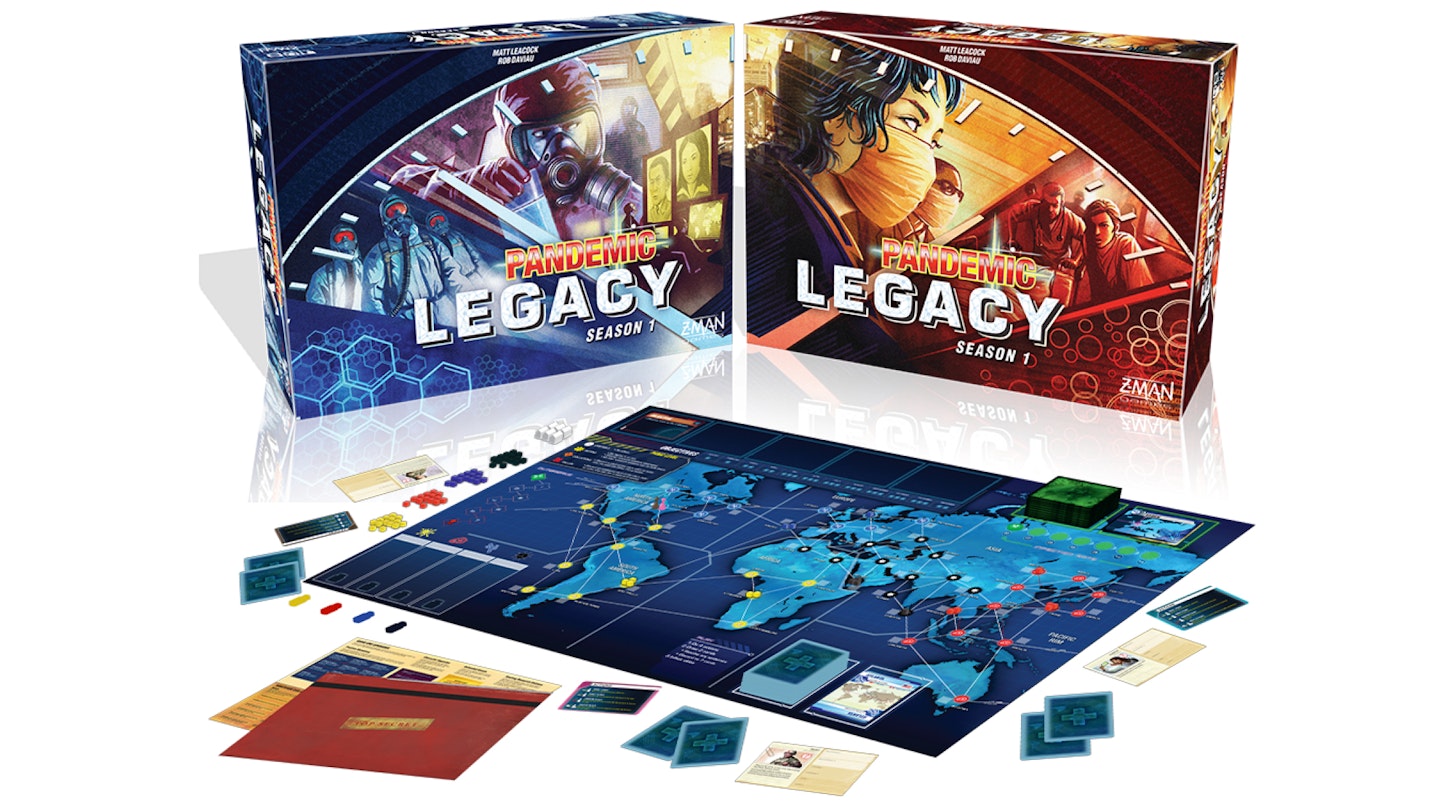
Designers: Matt Leacock, Rob Daviau
Players: 2-4
Game Time: 60 min
Age: 13+
When Matt Leacock’s global disease-battling game Pandemic landed 10 years ago, it popularised cooperative games (where every player either wins or loses together) like no other. Then in 2015, Leacock collaborated with Risk Legacy creator Rob Daviau to release a variant that topped the original and popularised a whole new genre: the Legacy game.
This plays over a “season”, during which you’ll tear up used cards, draw on the board, cover it in stickers, watch characters perma-die and — yes — never play again once it’s complete. Unless you want to buy a whole other box, although there’s already a Season 2, set 70 years later, and a Season 3 in the works.
The result is an interactive narrative experience akin to a Netflix show you play on a tabletop, where over 12-24 games you and your friends take the role of a team of experts struggling to stop the world from falling into illness and chaos. To go into much more detail would be as egregious as spoiling the plot of Breaking Bad. But it’s an awesome experience whose unexpected twists and turns more than make up for its lack of long-term replayability.
2. Scythe (2016)
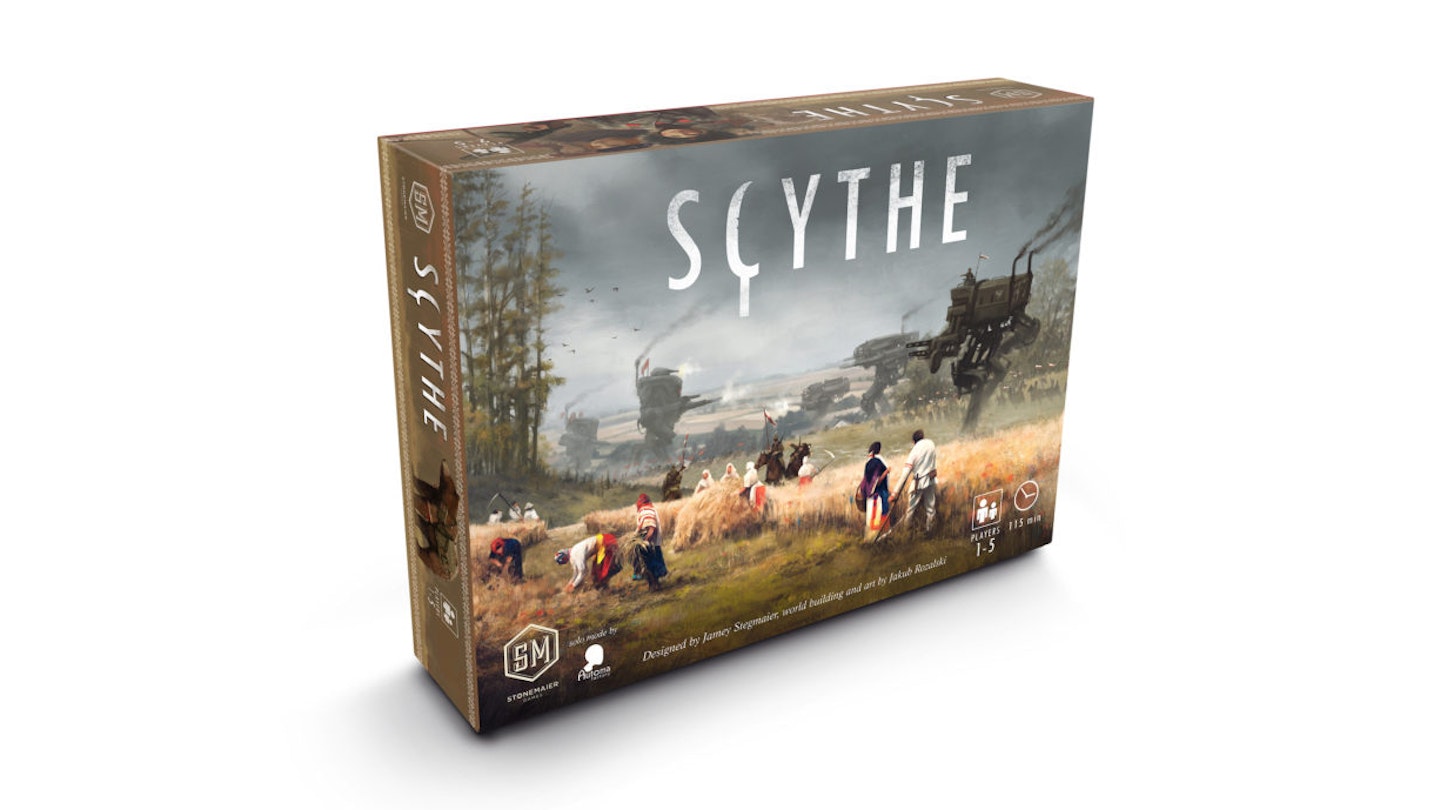
Designer: Jamey Stegmaier
Players: 1-5
Game Time: 90-120 min
Age: 14+
Inspired by the paintings of Polish artist Jakub Rozalski, which placed dieselpunk mechs in early 20th-century landscapes, this elegant strategy game sees different factions vying for supremacy in an alternate-universe post-war Eastern Europe, where gigantic robotic vehicles stomp around the battle-torn land. But don’t mistake it for a wargame; there are many non-lethal routes to success, and in fact starting a fight can penalise you, costing you the support of the conflict-weary locals. Plays great, and thanks to Rozalski’s art, looks gorgeous too.
3. Gloomhaven (2017)
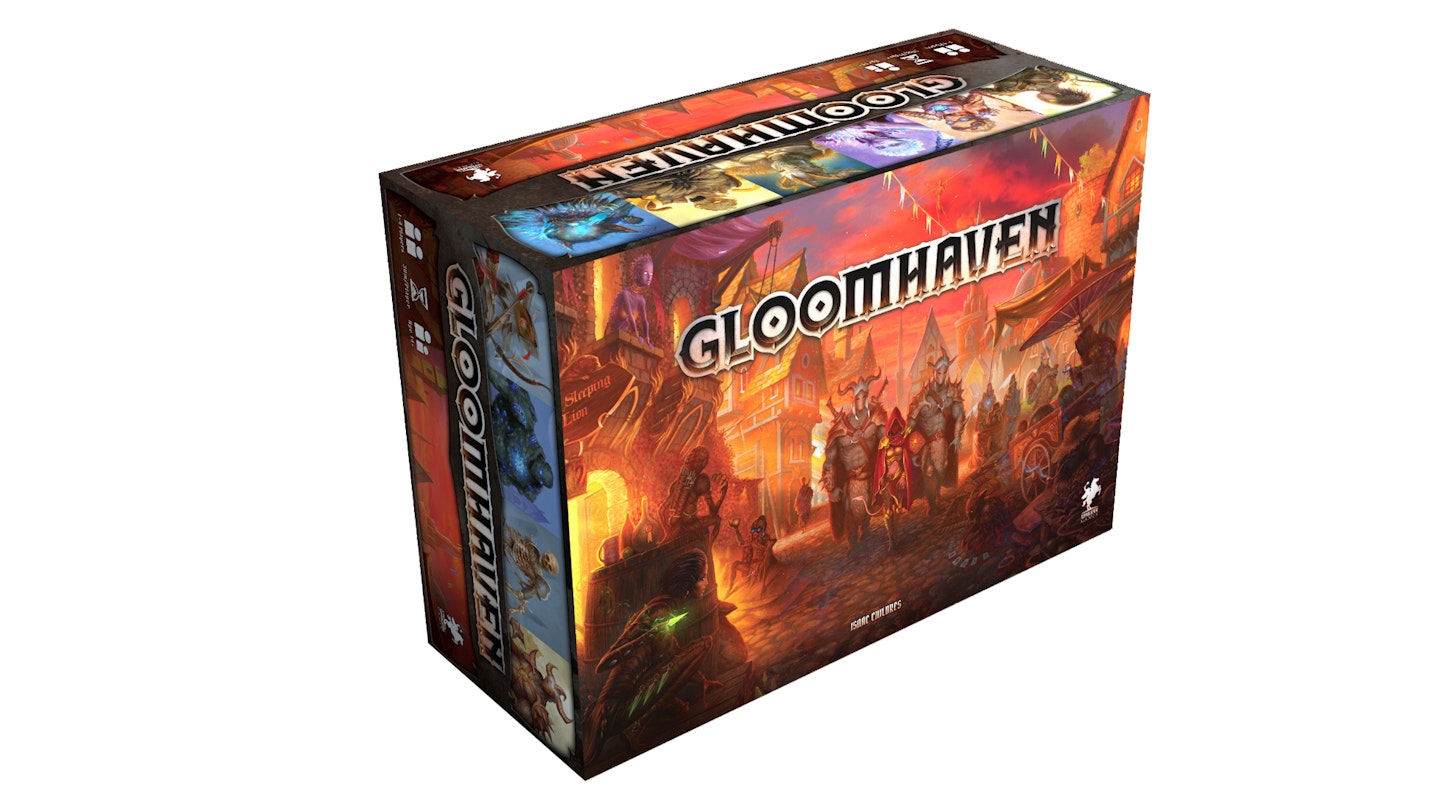
Designer: Isaac Childres
Players: 1-4
Game Time: 120 min
Age: 12+
This cooperative fantasy adventure is a huge game in more ways than one: the box and all its components weigh in at just under 10 kilos, while it provides enough adventure scenarios (each of which permanently changes the game-world while building an ongoing narrative, Legacy style) to keep you absorbed for months. Meanwhile its innovative card-based, dice-free combat system provides an intense sense of tactical depth that’s made it beloved by tabletoppers of a more hardcore bent. One warning, though: each game takes a hell of a long time to set up.
4. Agricola (2007)
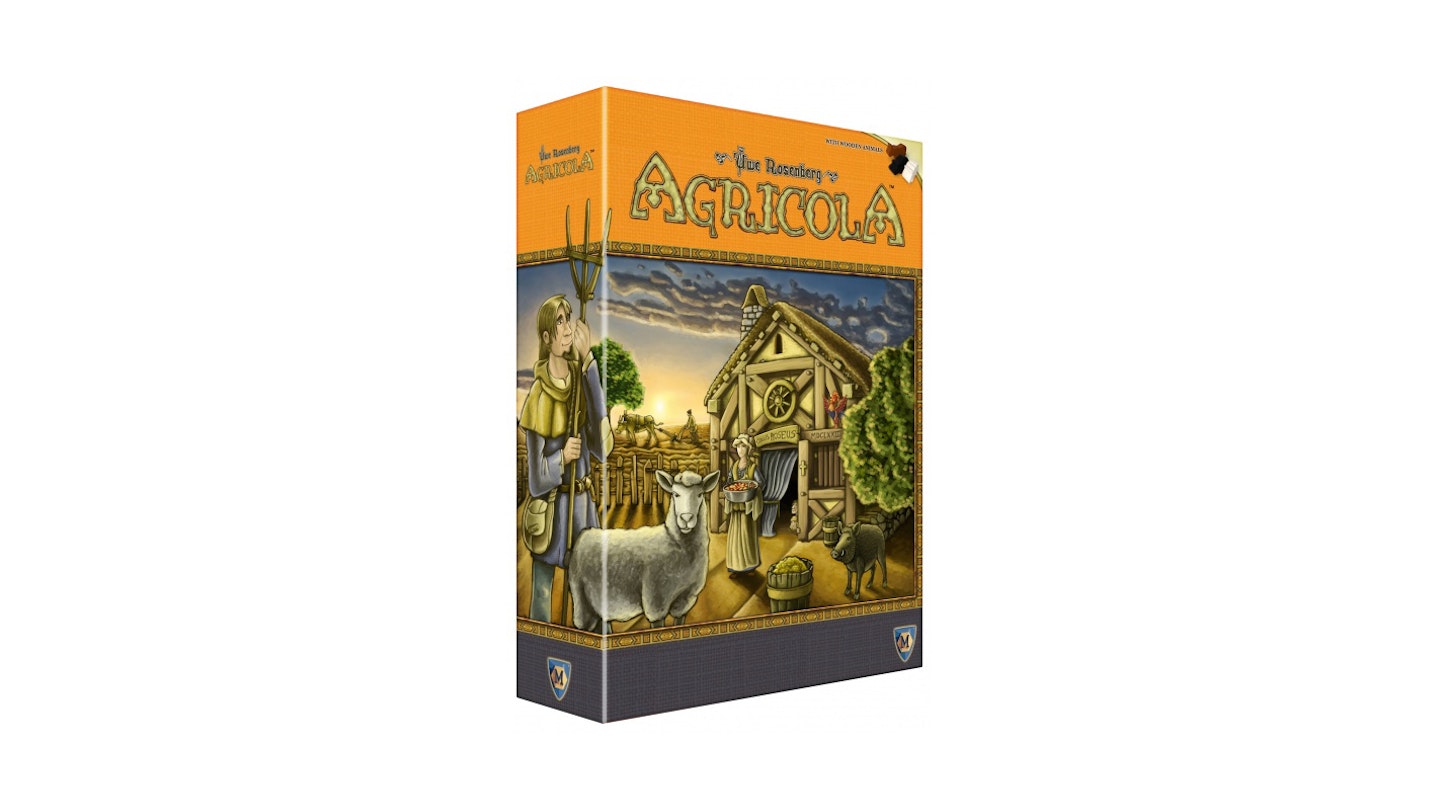
Designer: Uwe Rosenberg
Players: 1-5
Game Time: 60-120 min
Age: 12+
A true classic from one of Germany’s most lauded designers, Uwe Rosenberg, and a fantastic example of the worker-placement genre. In a post-Black Death Central Europe, each player runs a family farm, aiming to yield the most crops, raise the most livestock and make their farmhouse as big and strong as possible by taking turns to place their workers on a set of action cards which are gradually revealed as the seasons pass. But don’t forget to have enough grub to feed your own family once harvest-time comes. That would be bad.
5. Terraforming Mars (2016)
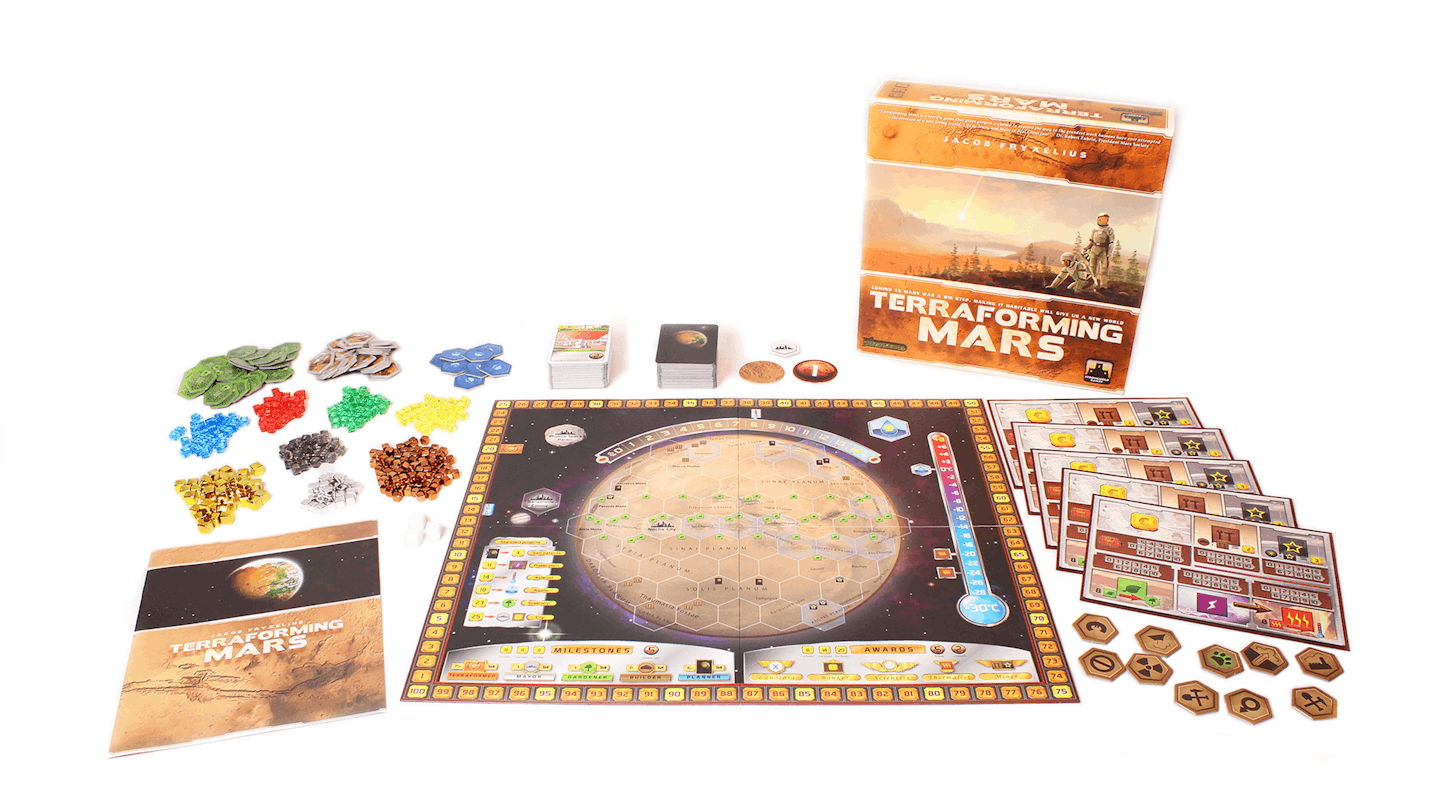
Designer: Jacob Fryxelius
Players: 1-5
Game Time: 120 min
Age: 12+
In this pleasingly scientifically accurate tile-laying/hand-managing hybrid, Mars needs to be made habitable. To do that each player’s corporation (each with its own unique ability) must earn points by helping to raise the temperature (to eight degrees Celsius), creating oceans (nine in total) and getting enough oxygen into the air (14 percent) by planting forests. The board is an actual map of the real red planet, giving a palpable sense of your literally world-changing decisions.
6. Lords Of Waterdeep (2012)
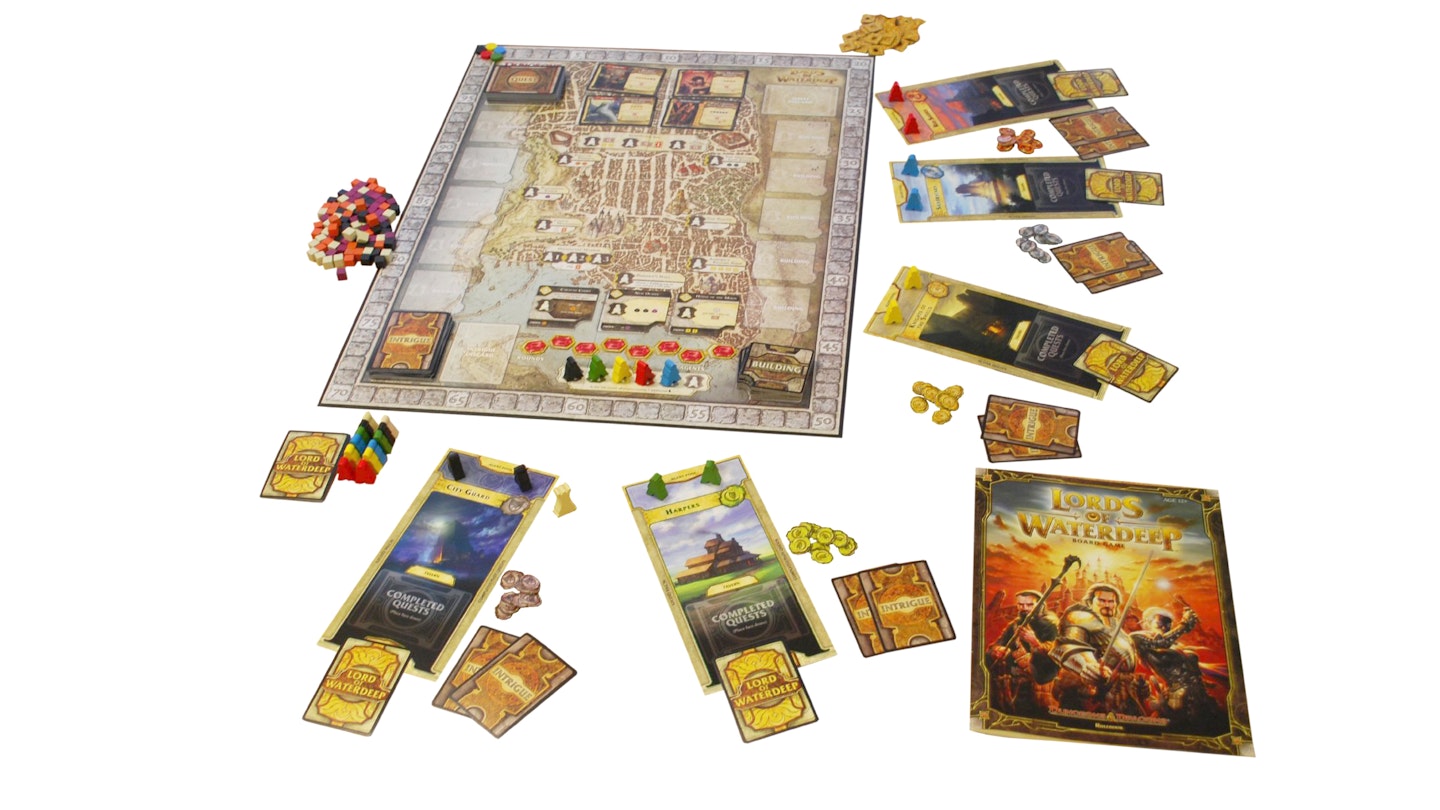
Designers: Peter Lee, Rodney Thompson
Players: 2-5
Game Time: 60-90 min
Age: 12+
Though set in the Dungeons & Dragons world of the Forgotten Realms — specifically that land’s faction-riven titular big city — Lords Of Waterdeep has an appeal that extends far beyond 20-sided-dice-rolling fantasy nerds. In fact, it involves no dice at all, with each player placing agents on the city-board to gain money and influence, recruiting heroes to go on quests and building new structures to gain supremacy over their opponents. It’s a smooth, easy-to-learn experience that has deservedly become a tabletop perennial.
7. Terra Mystica (2012)
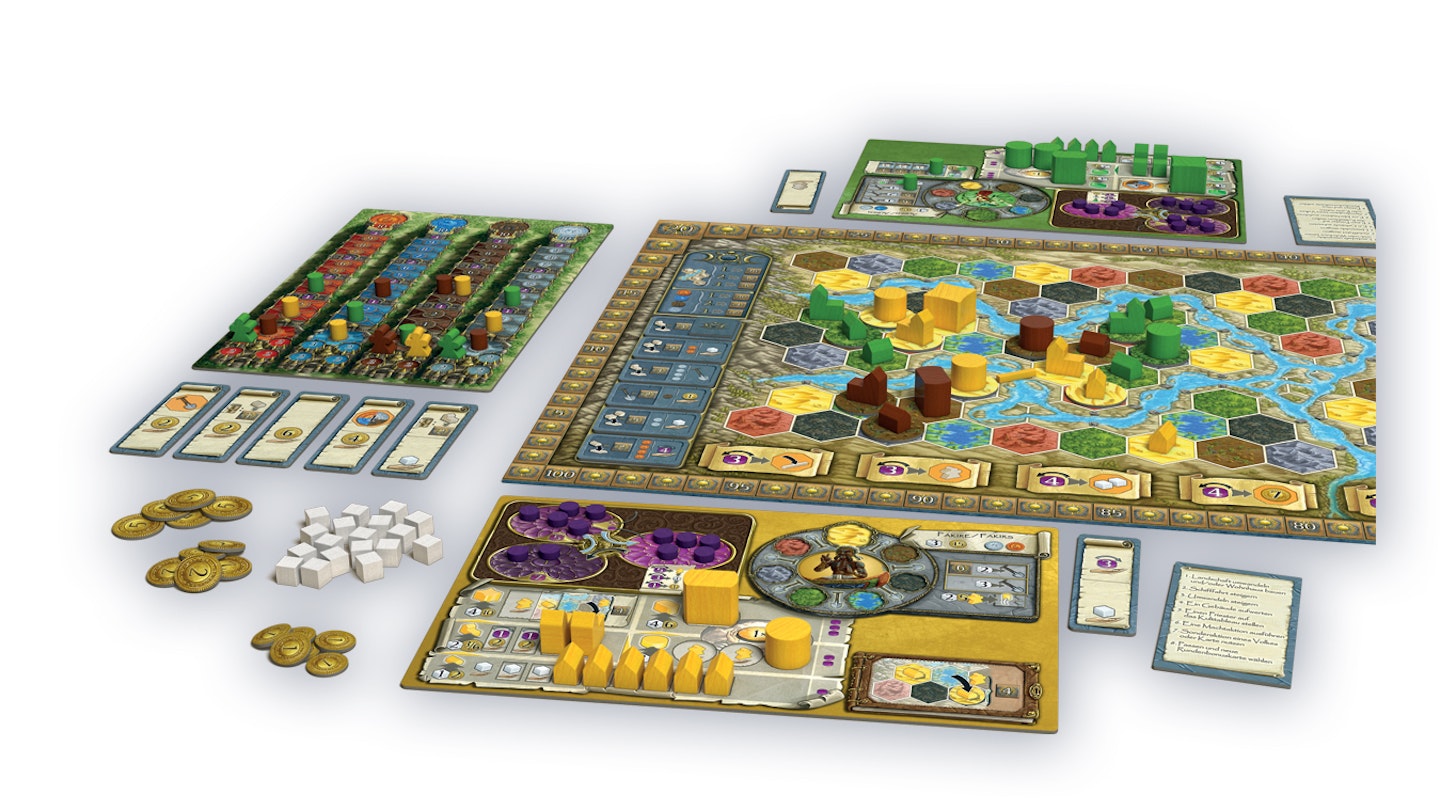
Designers: Jens Drögemüller, Helge Ostertag
Players: 2-5
Game Time: 60-150 min
Age: 12+
An intricately designed but easy to digest civilisation-builder, in which different races compete for dominance over a fantastical world by magically terraforming the terrain to their favoured type, then slapping down bonus-granting structures in the newly transformed earth. The tactical tension comes from electing to go for the biggest points-earning territory, or focusing on hanging close to your opponents, blocking their growth and drawing power from their construction work. A thoroughly influential game, and if you don’t fancy the fantasy theme, it was last year given a sci-fi makeover as Gaia Project.
8. 7 Wonders Duel (2015)
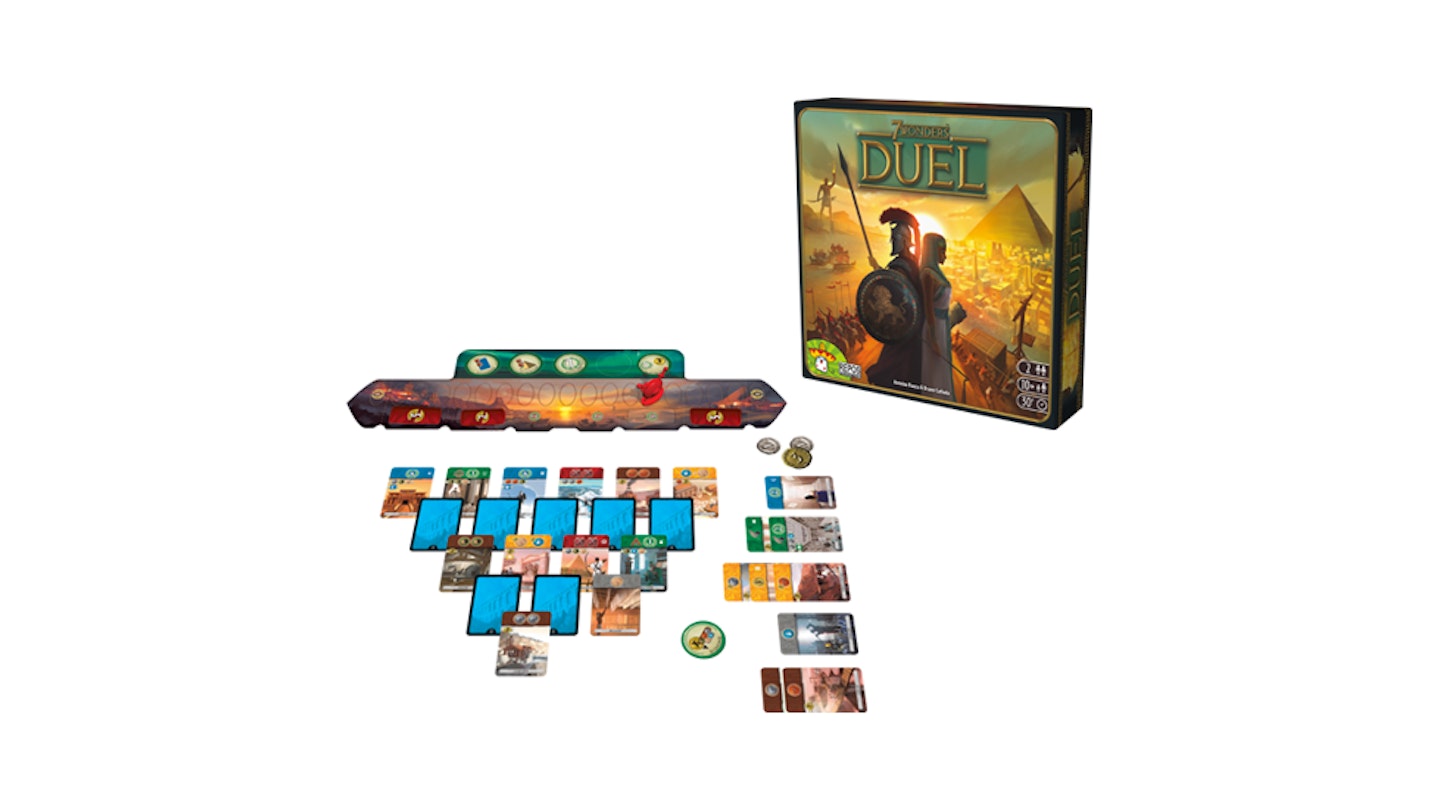
Designers: Antoine Bauza, Bruno Cathala
Players: 2
Game Time: 30 min
Age: 10+
A two-player-only version of 2010’s 7 Wonders, this takes the original’s Ancient World city-building theme and perfectly refines it into an endlessly compelling, small-box head-to-head experience. Each player draws from a central arrangement of face-down and face-up resource cards, aiming to gradually build the most impressive cities, unless someone brings the game to a swifter end by achieving either a scientific or military victory.
9. Carcassonne (2000)

Designer: Klaus-Jürgen Wrede
Players: 2-5
Game Time: 30-45 min
Age: 8+
A beautiful tile-laying classic, inspired by the medieval southern-French town of the title. Players take turns drawing tiles from a face-down stack and arranging them to build cities, roads, farms or cloisters. But they can only score points if they assign a follower to the relevant feature (e.g. as a knight on a city) before completing it — and each player only gets eight followers to work with. Though it’s competitive, there’s a lovely sense of collaboration as everyone works together to create an aesthetically pleasing landscape.
10. Blood Rage (2015)
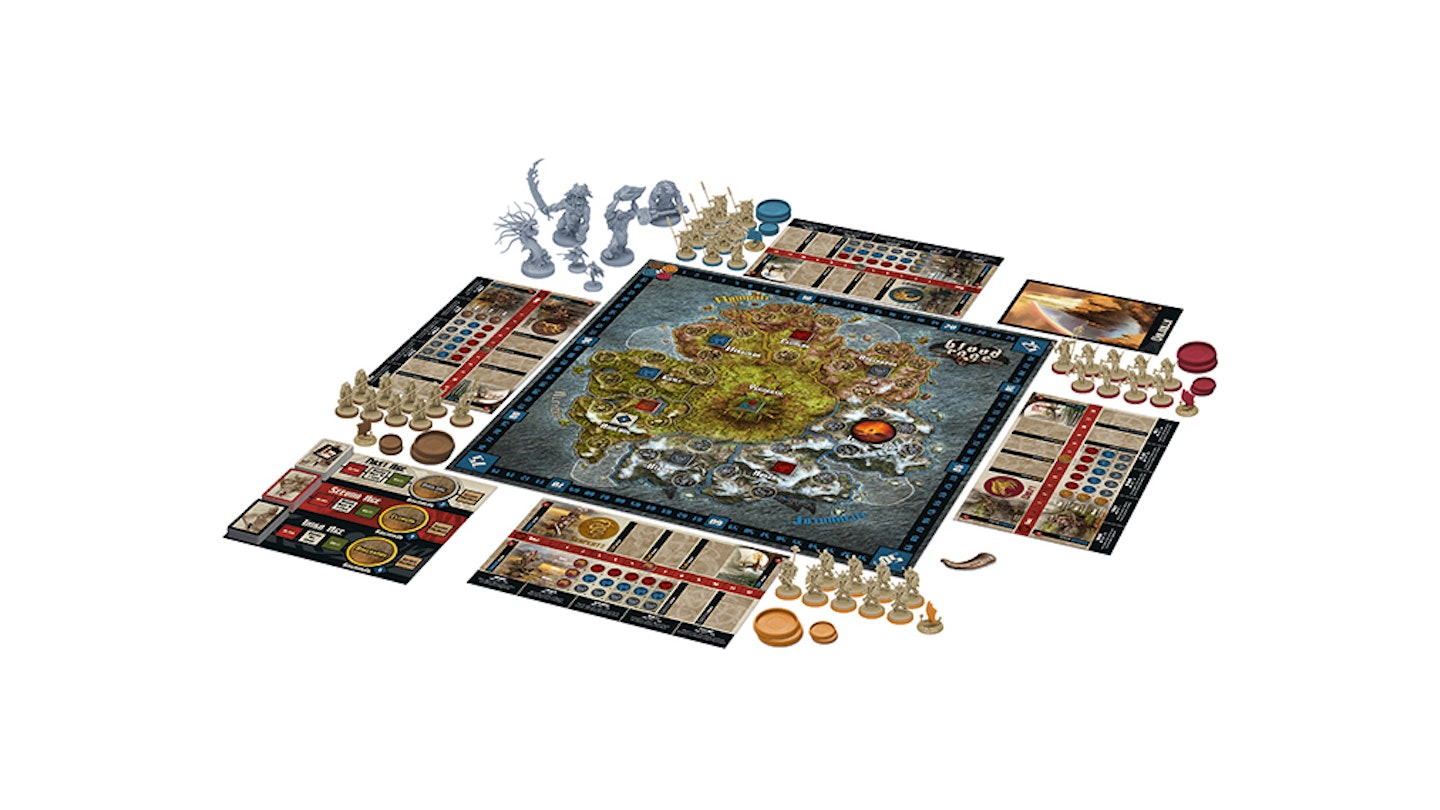
Designer: Eric M. Lang
Players: 2-4
Game Time: 60-90 min
Age: 14+
It’s the end of the Nine Realms! Time for your Viking clan to prove it can go out in the biggest blaze of glory, either through invading and pillaging the lands of Midgard, hurling its warriors into battle against your opponents (perhaps bringing a gigantic monster or two with them), going on quests, or even finding ways to die in the most glorious manner possible. A beautifully wrought production from American gaming star Eric M. Lang, this comes with some of the most impressively detailed plastic miniatures you’ll see on any tabletop.
11. Eldritch Horror (2013)
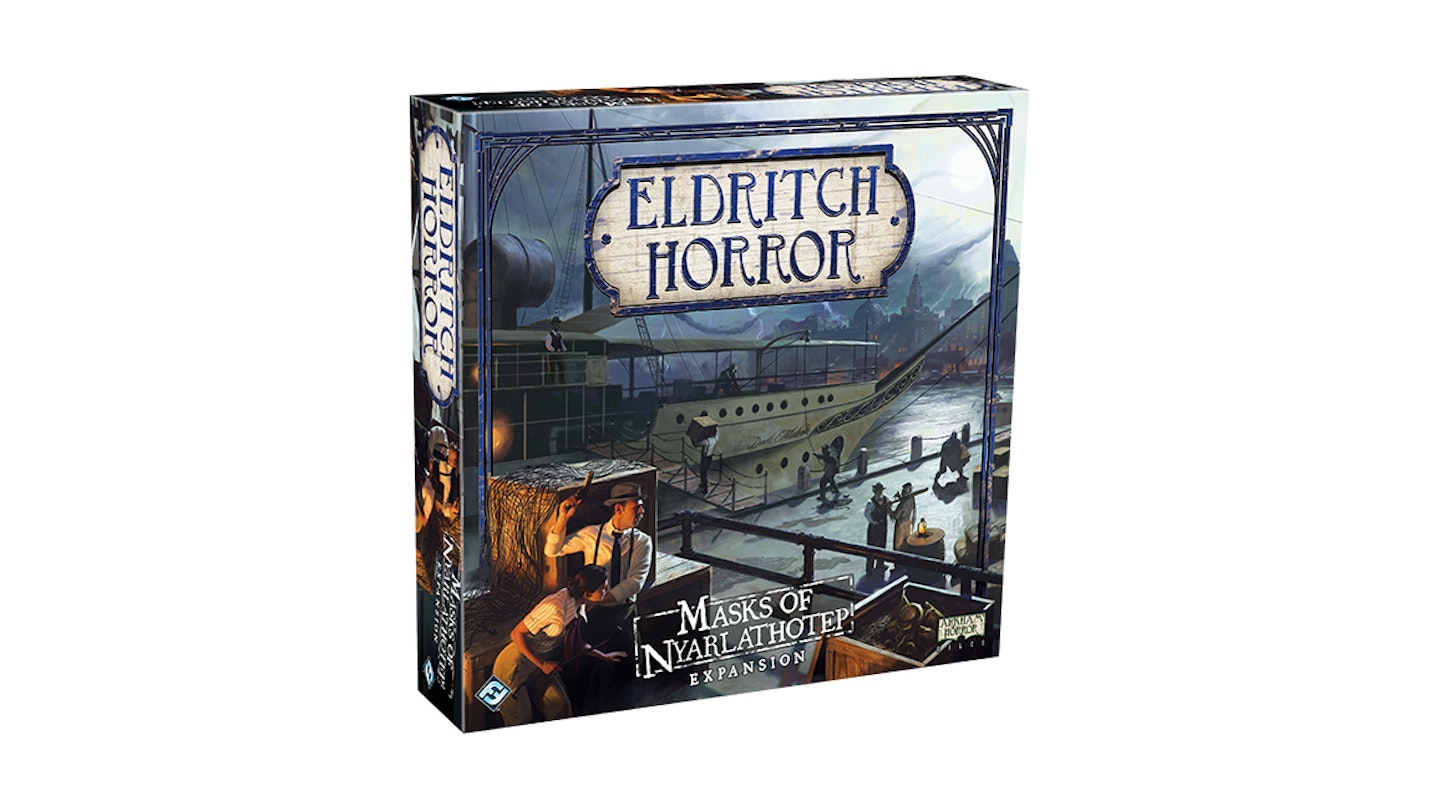
Designers: Corey Konieczka, Nikki Valens
Players: 1-8
Game Time: 120-240 min
Age: 14+
There’s no shortage of games based on the tentacley works of HP Lovecraft, but this epic, globetrotting co-operative adventure is arguably the best, thanks to its entertaining sense of crazy threat escalation and some absorbing writing. Each player chooses an investigator who has to travel the world solving arcane mysteries, resisting insanity and closing interdimensional gates, before a colossal, world-devouring Ancient One forces its way through into our all-too-fragile reality. Even if you lose and Earth is reduced to ashes, it’s still great fun. Which is just as well: wins are rare, and as such are always well earned.
12. Star Wars Rebellion (2016)
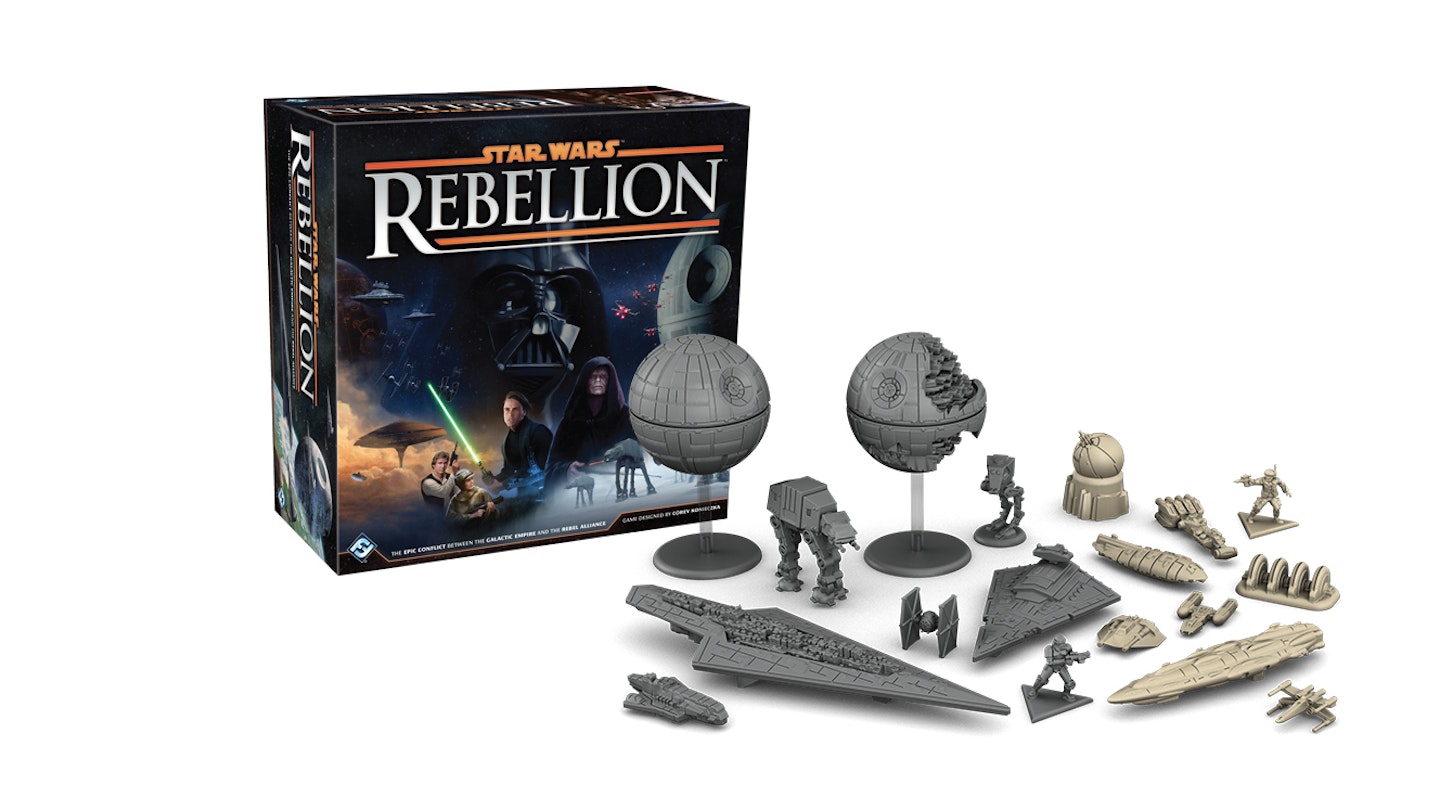
Designer: Corey Konieczka
Players: 2-4
Game Time: 180-240 min
Age: 14+
It’s a colossal achievement: boiling down the entire original Star Wars trilogy into a single board game. And, as you might expect, it requires a colossal board, boxed with a hefty selection of high-quality miniature spaceships that you move around the known galaxy trying to outmanoeuvre your opponents. The Imperial player (or team’s) job is to track down the Rebels’ secret base and overwhelm them with your firepower and sheer numbers. The Rebels, in contrast, need to pull off sabotage missions and gather intelligence, all the while trying to evade capture. Deep, epic and the best Wars-based board game out there.
13. Century: Spice Road (2017)
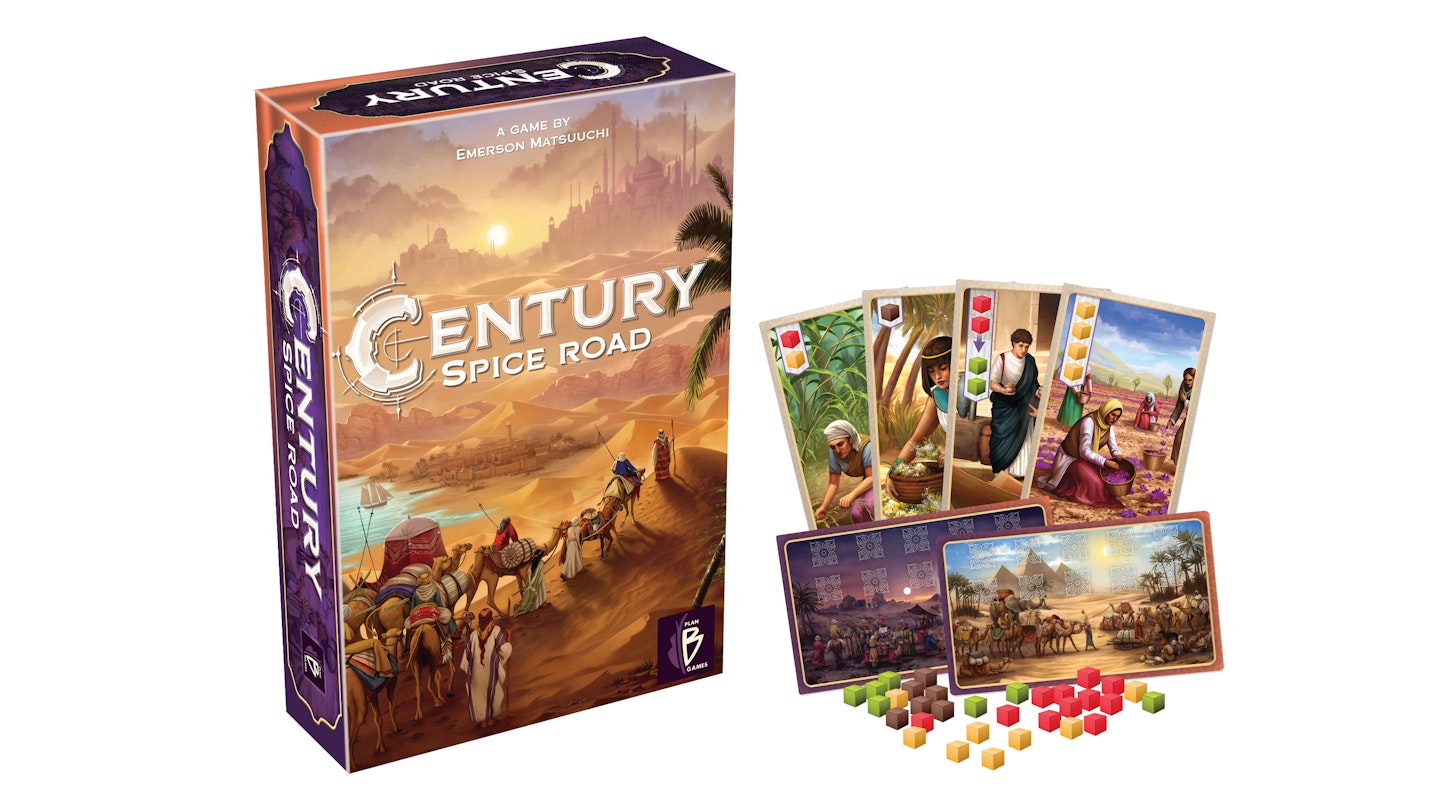
Designer: Emerson Matsuuchi
Players: 2-5
Game Time: 30-45 min
Age: 8+
The theme of spice-based commerce in the 15th century plays out through a smoothly conceived card game, where each player gradually builds up a hand of spice-trading action cards and has to play them to earn point-scoring combos. The four kinds of spice are represented by wooden cubes, which come in neat plastic bowls, adding a valuable ‘component feel’ to an already engaging system. There’s already a sequel (Eastern Wonders) out, which involves tile-based spice-island hopping, and is just as deliciously satisfying.
14. Five Tribes: The Djinns Of Naqala (2014)
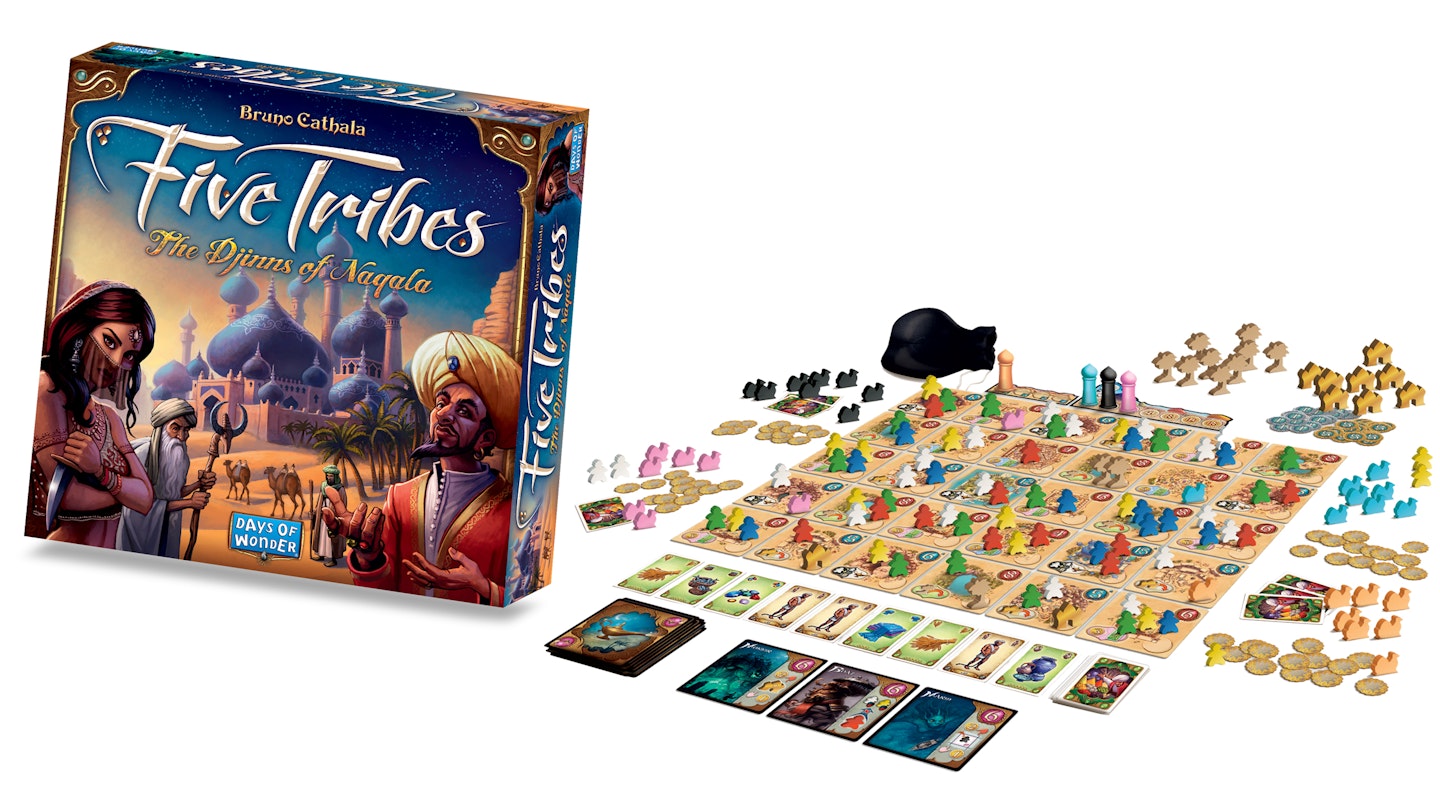
Designer: Bruno Cathala
Players: 2-4
Game Time: 60 min
Age: 13+
Involving rich oases, powerful djinn, deadly assassins and scheming viziers, you’re very much on Arabian Nights territory with Five Tribes. But what really marks it out is its interesting ‘seeding’ mechanism, whereby you seize territory and activate special powers by choosing a randomly arranged group of colour-coded agents (assassins are red, builders are blue, etc.), and dropping them off one by one, oasis by oasis, with the aim of creating a single colour set at their final destination. Weirdly, it’s easier to learn than it is to explain.
15. A Feast For Odin (2016)
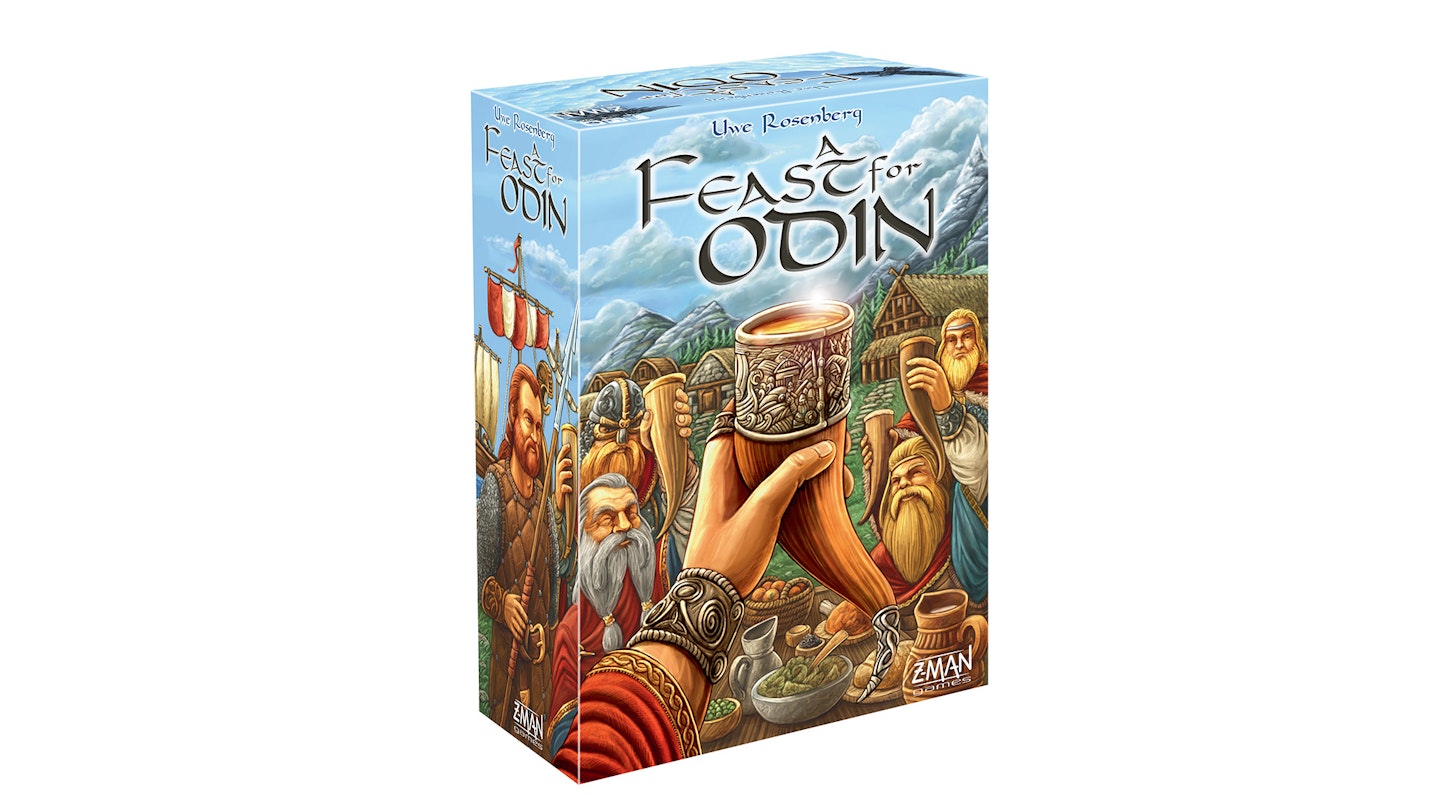
Designer: Uwe Rosenberg
Players: 1-4
Game Time: 60-120 min
Age: 14+
Usually, Viking-themed board games (and there are many) focus on all the expected raiding and pillaging. But Uwe Rosenberg’s table-based saga is concerned with encapsulating all aspects of Norse life: hunting, fishing, trading, crafting and exploration are all offered as different routes to your clan’s success… in addition to, well, raiding and pillaging. It’s astonishingly detailed with an almost overwhelming choice of options per turn, but your attention is rewarded with a game that really does feel different every time you play.
16. Castles Of Mad King Ludwig (2014)
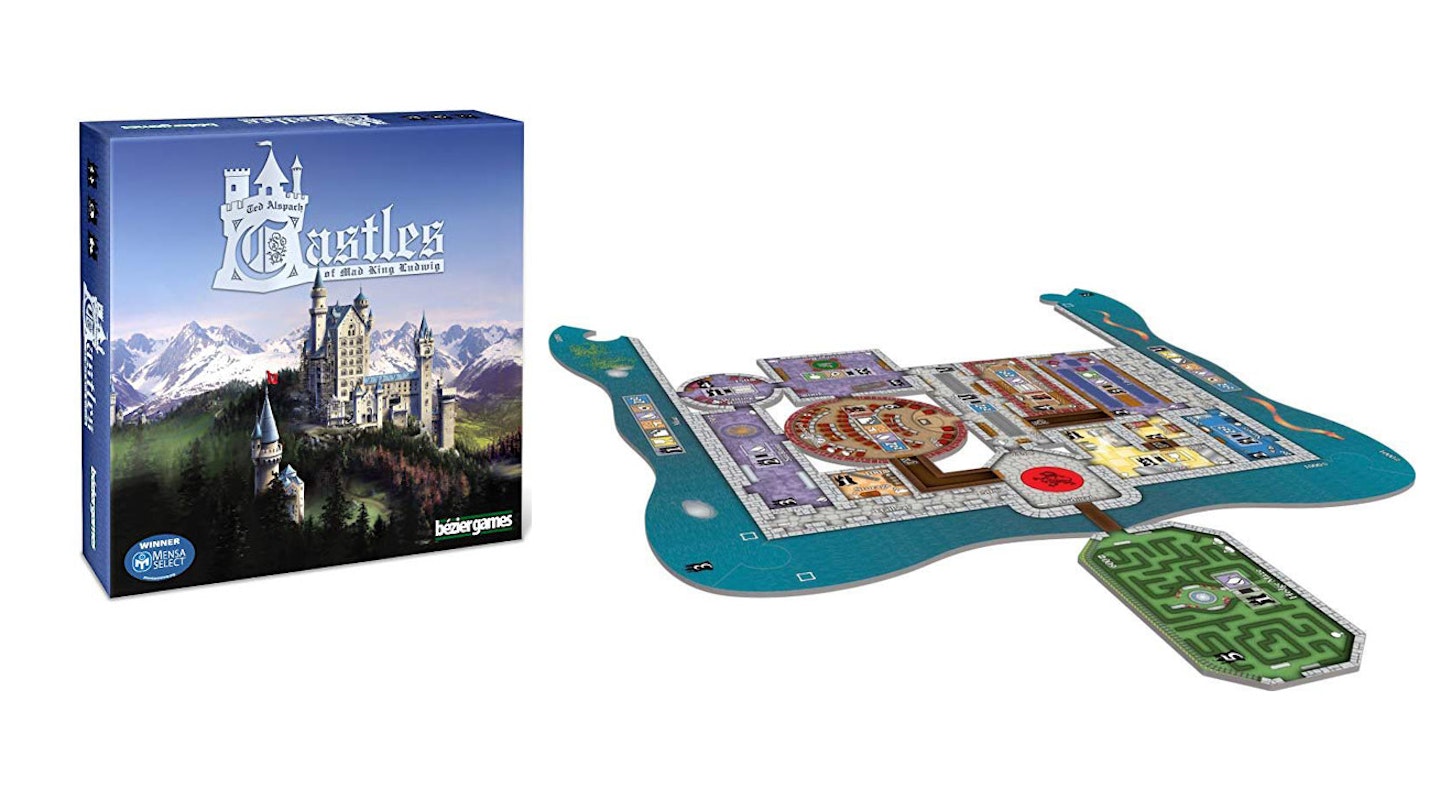
Designer: Ted Alspach
Players: 1-4
Game Time: 90 min
Age: 13+
A joyous example of the tile-laying genre, where each player gets to construct their own castle floorplan, trying to conform to the eccentric whims of the eponymous 19th century Bavarian monarch, Ludwig II. A usual sign of a great game is one that you don’t mind losing, and that’s definitely the case with Castles. Maybe you won’t score the most points come the final reckoning, but chances are you’ll be very proud of your strange, sprawling creation.
17. Dominion (2008)
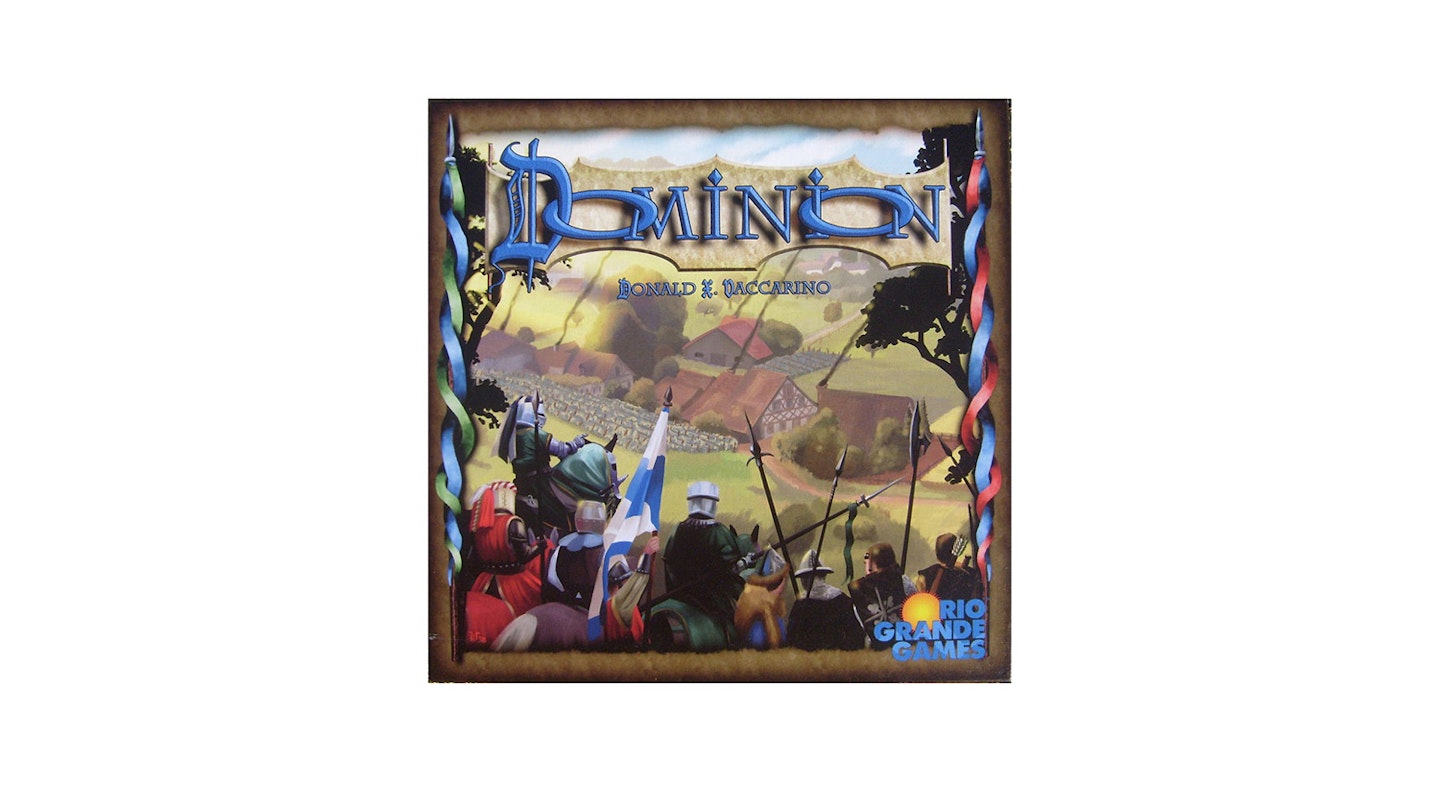
Designer: Donald X. Vaccarino
Players: 2-4
Game Time: 30 min
Age: 13+
The game that started a whole new genre: deckbuilding. Each player is a medieval monarch, aiming to build up the most impressive kingdom from an initially modest land. As such, they each start with the same small deck of cards, then gradually add to that from a randomly selected ‘market’ of cards at the table’s centre, increasing the actions they can perform per turn and the points-awarding assets they gather, developing their own strategies and synergies as they go. It’s ingenious stuff, which unsurprisingly has spawned a ton of expansions.
18. Catan (1995)
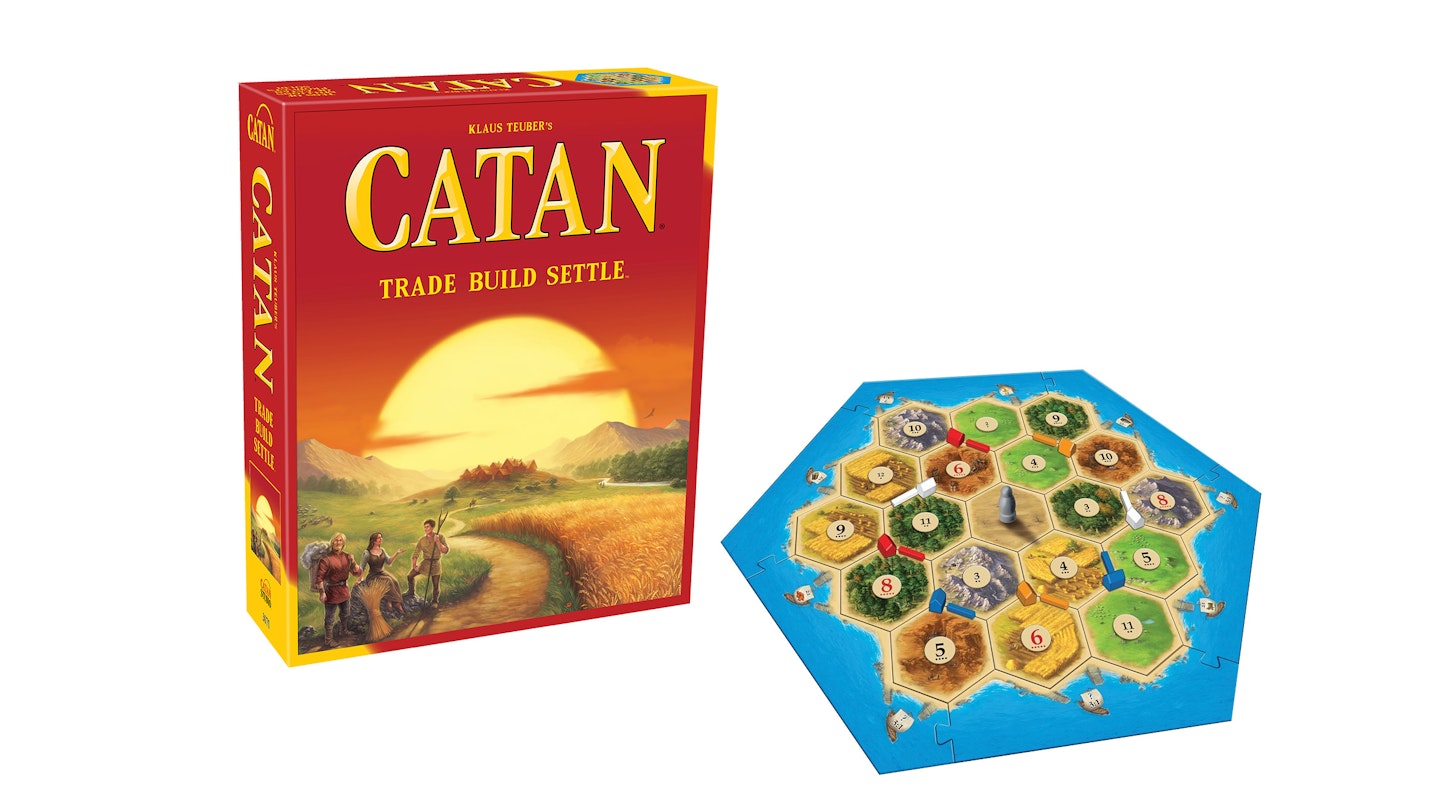
Designer: Klaus Teuber
Players: 3-4
Game Time: 60-90 min
Age: 10+
The oldest, most successful and influential board game on this list, Catan (formerly Settlers Of Catan) made such an impact on gaming it was once called “the Monopoly killer”. Of course, many of the “Euro-style” games it inspired have surpassed it in terms of quality (its reliance on dice makes for some irksome randomness), but it remains hugely popular for its straightforward, relatively gentle settlement-building and trading mechanisms and modular hex-based board. Kristen Bell’s a fan, too, which is a huge forking recommendation.
19. Codenames (2015)
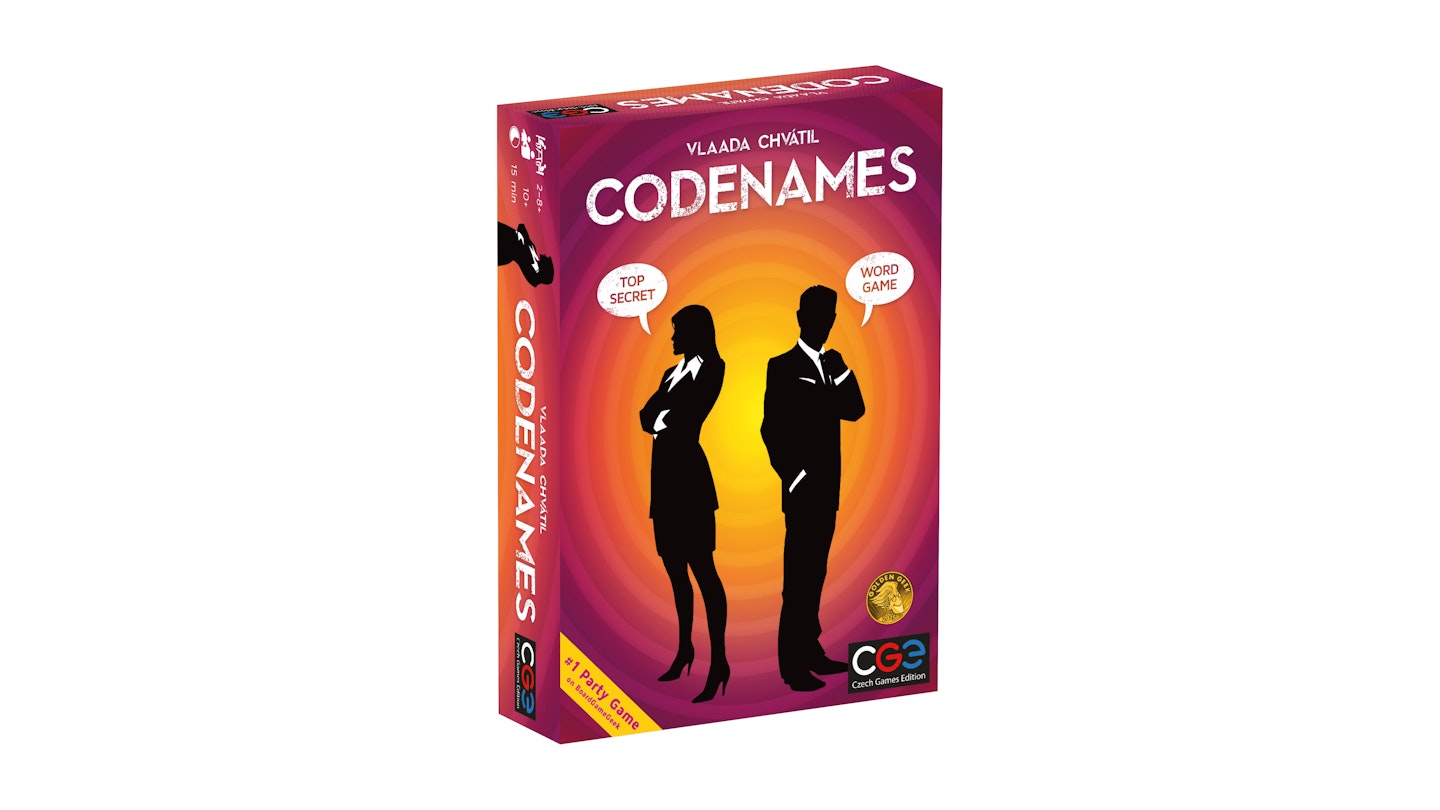
Designer: Vlaada Chvátil
Players: 2-8
Game Time: 15 min
Age: 14+
One of the best party games of recent years, this offering from prolific Czech designer Vlaada Chvátil sets two teams against each other to retrieve all their secret agents in the field, with each team nominating a “Spymaster” to provide the clues to their whereabouts. Each agent is represented by a single word, with each Spymaster only allowed to give a one-word clue — one which should avoid any chance of their team accidentally uncovering the other team’s agents — or the game-ending assassin. Genuinely a game for everyone. Even your Uncle Terry will enjoy it.
20. Citadels (2007)
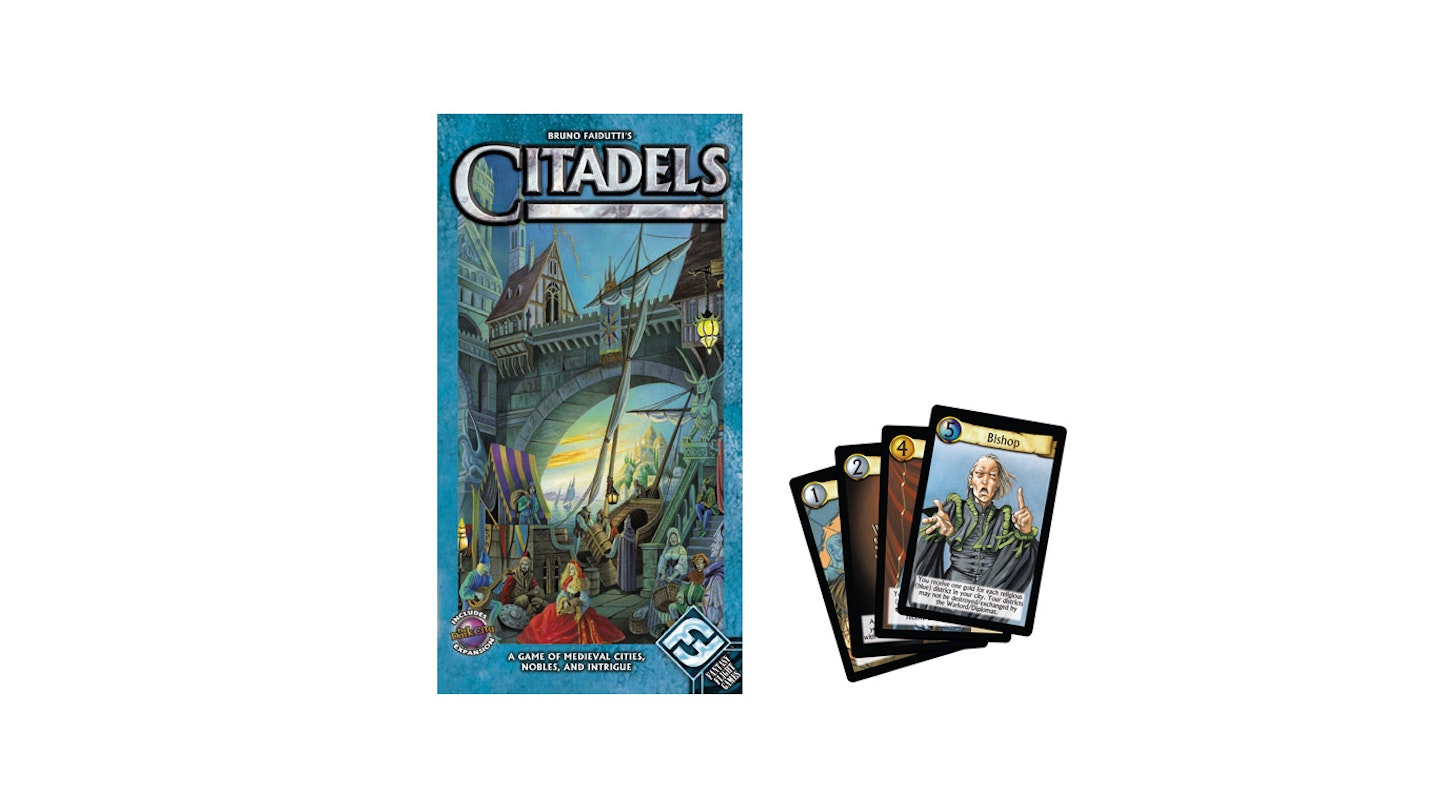
Designer: Bruno Faidutti
Players: 2-8
Game Time: 30-60 min
Age: 10+
It’s quick to play and easy to learn, but Citadels packs a lot of depth into its small box. Each player aims to build the most impressive city by drawing district cards and paying their cost. But the core of the game is the different special roles you can play each turn, decided by a card draft at the start of each round (whereby all the cards are passed around the table, each payer choosing one and passing on). These allow for rule-bending strategies; for example, the Architect can build extra districts, the Assassin can steal another player’s turn and the Warlord can destroy someone’s district. For the best Citadels experience, check out the beefed up and beautifully re-illustrated 2016 edition.
21. Ticket To Ride (2004)
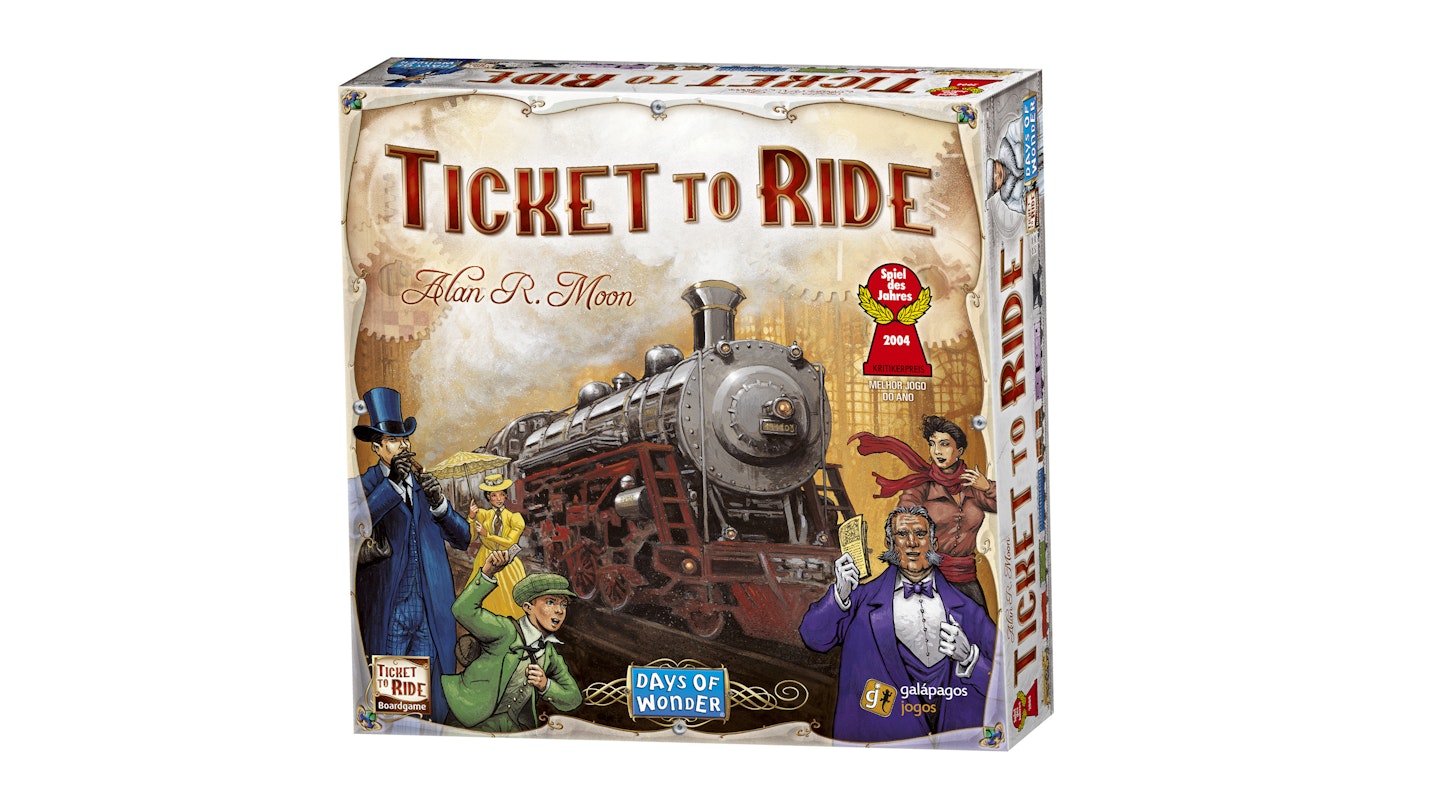
Designer: Alan R. Moon
Players: 2-5
Game Time: 30-60 min
Age: 8+
One of the biggest titles of the tabletop renaissance, this elegantly accessible game sees players racing across America (or Europe, or the Nordic countries, or many other variants depending on which version you play), collecting coloured train-car cards to complete point-scoring routes. The longer routes obviously score the most points, but going for them is risky as it means holding onto your cards for longer. The ideal gateway game, sure to turn any tabletop sceptic.
22. Puerto Rico (2002)
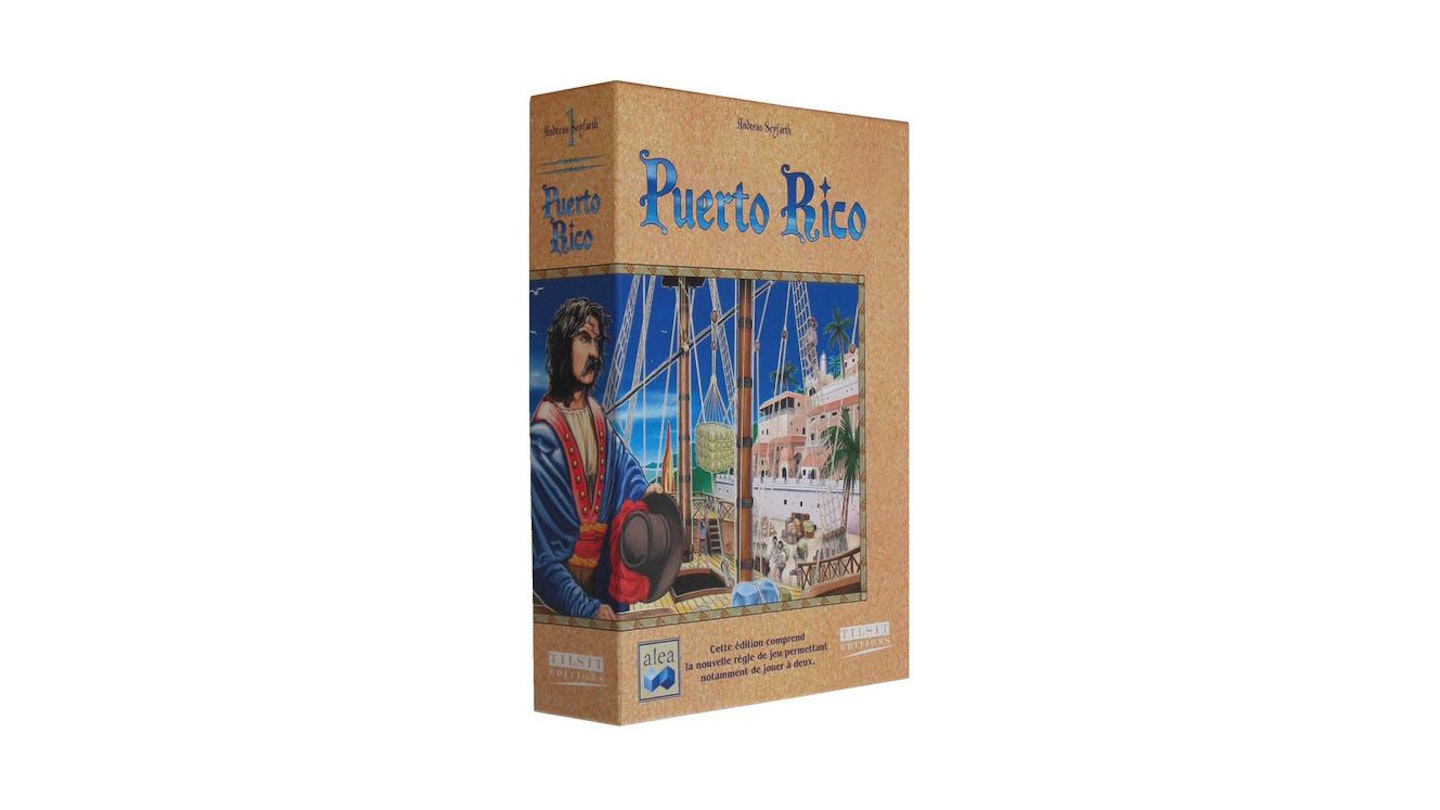
Designer: Andreas Seyfarth
Players: 3-5
Game Time: 120 min
Age: 12+
While the colonial theme may jar with modern sensibilities (earn the most points by sending the most Puerto Rican produce back to Europe!), this “Eurogame” remains immensely popular and thoroughly replayable. This is mostly thanks to a neat mechanism which means that each player takes turns deciding on the action that all the players must take that turn — building a structure, for example, or a new plantation, or selling goods — ensuring plenty of variety in every game.
23. Twilight Imperium (1997)
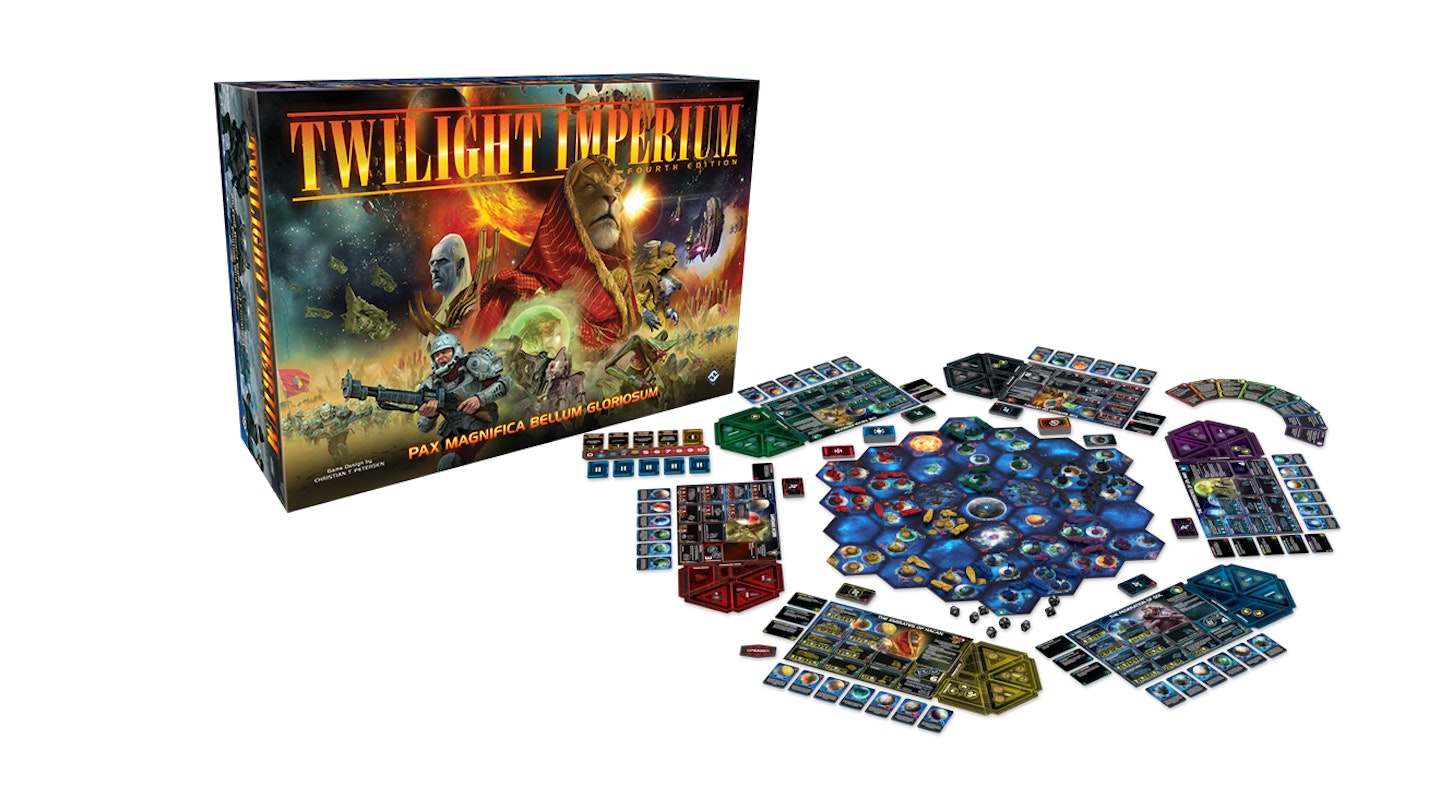
Designer: Christian T. Petersen
Players: 2-6
Game Time: 240 min
Age: 12+
Now on its fourth (and best) edition, Twilight Imperium is a vast, epic space opera in a box. Giving a choice of 17 different interstellar factions on a board of 51 galaxy tiles that changes every time you play, it takes up a lot of table space and a lot of your time, too (expect a rule-learning first game to take the best part of the day). While hardly suitable for a gateway gamer, it does reward the dedicated with its sheer strategic meatiness and cosmic breadth.
24. Charterstone (2017)
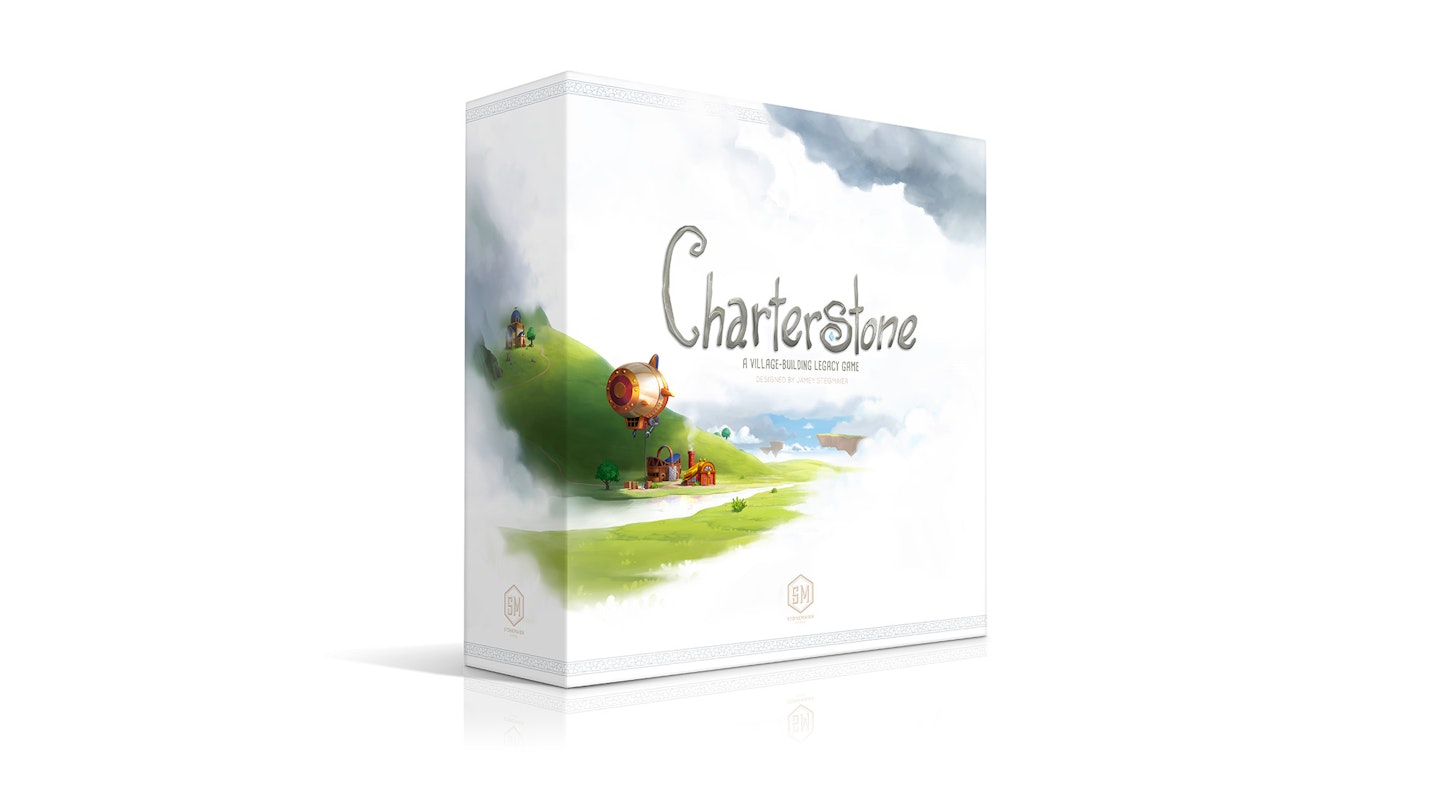
Designer: Jamey Stegmaier
Players: 1-6
Game Time: 60 min
Age: 14+
Set in a fairy-tale world where the players are a group of pioneers sent to build a new colony by the mysterious Forever King, Charterstone has a bold, attractive, Ghibli-ish feel to it. But as the story develops over a 12-game arc, during which the players competitively construct the board themselves, adding stickers and biro-scrawled place names, there’s an appealingly dark undercurrent to the emerging narrative. Designer Jamey “Scythe” Stegmaier’s latest might be a legacy title, but at the end of it you have your very own, unique worker-placement game.
25. Legendary Encounters: Alien (2014)
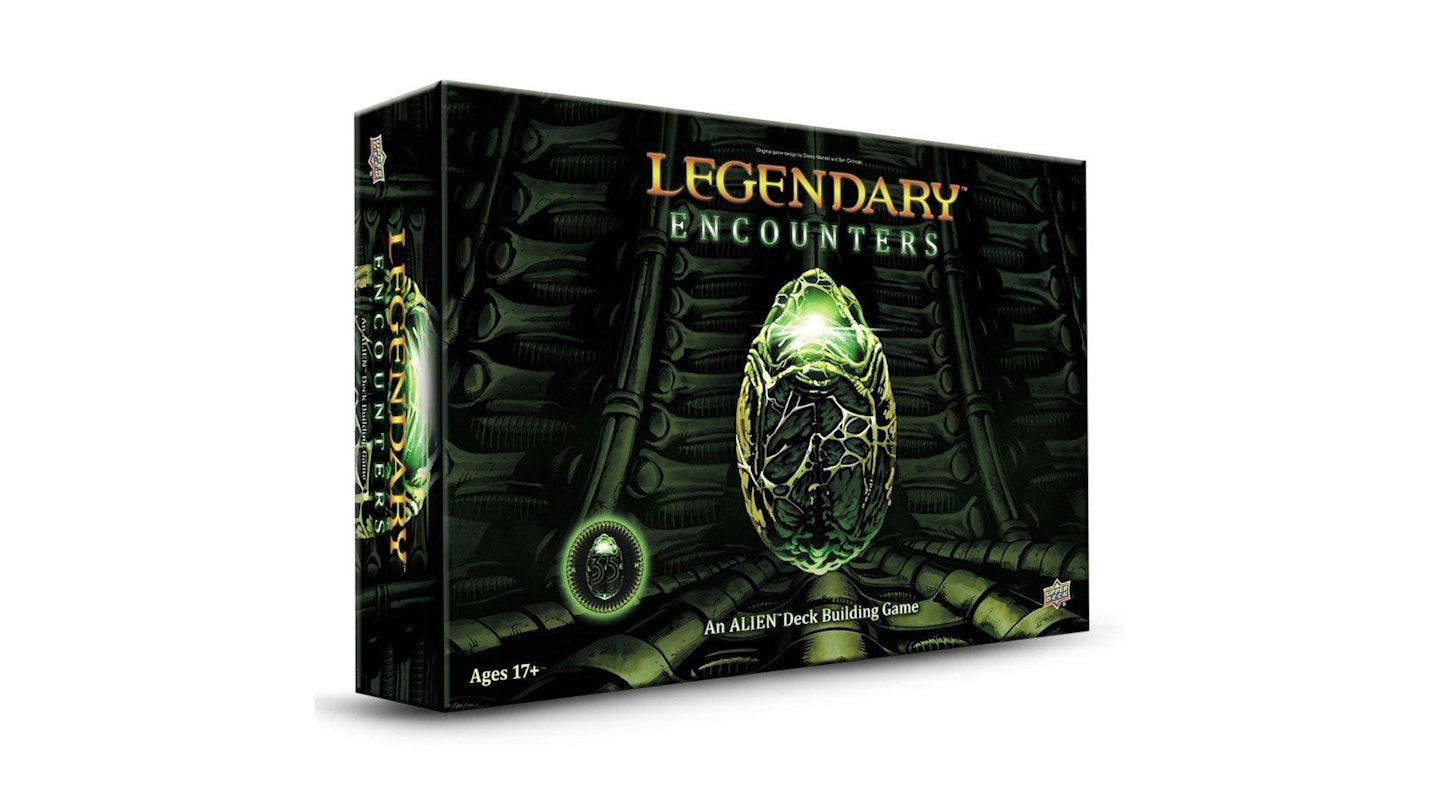
Designers: Ben Cichoski, Daniel Mandel
Players: 1-5
Game Time: 30-60 min
Age: 17+
A deckbuilding game which requires its players to cooperate to survive wave upon wave of acid-spewing xenomorphs, using each of the four Alien movies as a setting — depending on your preference. Obviously, Aliens is best suited to it, as you recruit the likes of Bishop, Hudson, Hicks and (of course) Ripley, to help your team prevail. It’s bastard hard, but you’ll be too busy enjoying all the movie references to let that bother you.
26. Dead Of Winter: A Crossroads Game
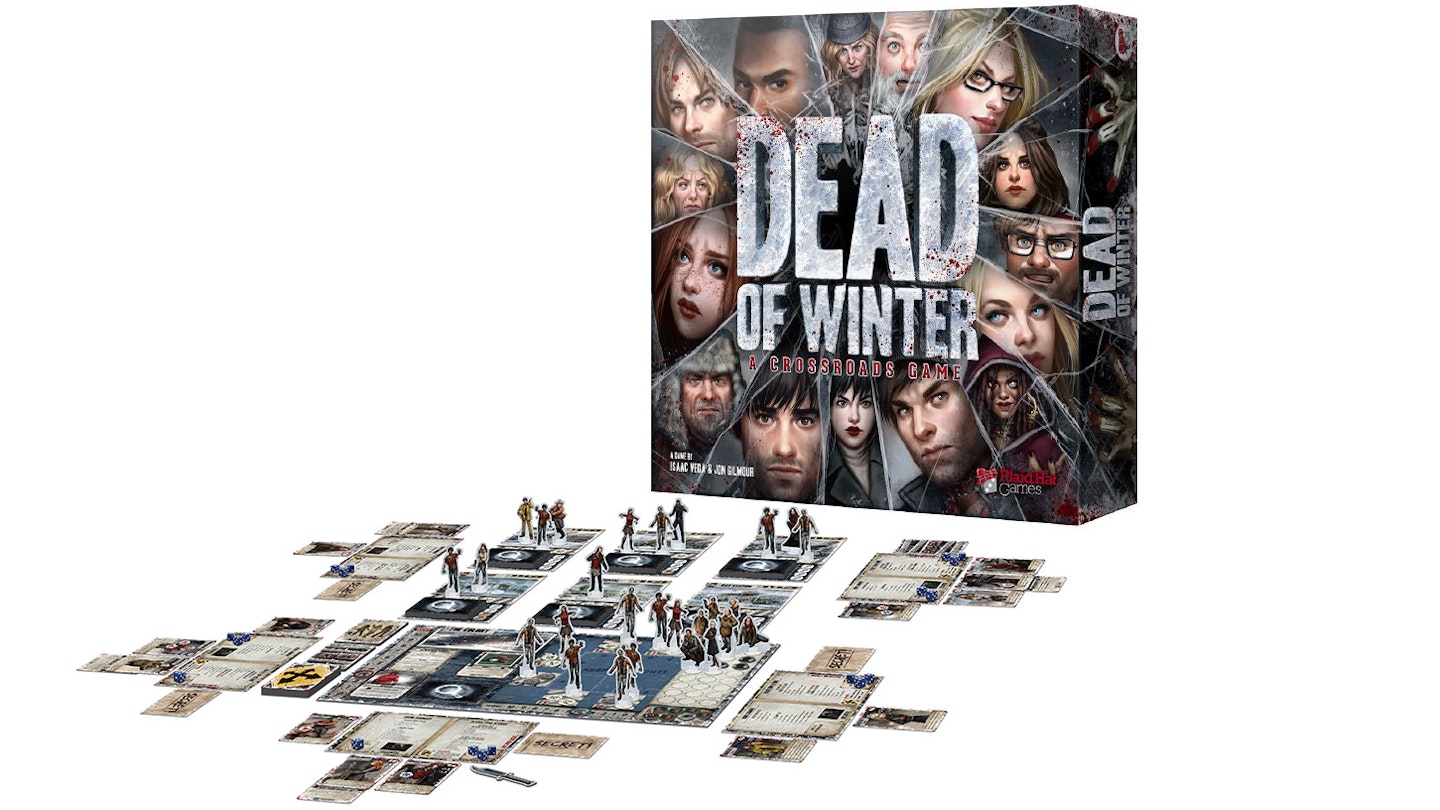
Designers: Jonathan Gilmour, Isaac Vega
Players: 2-5
Game Time: 60-120 min
Age: 13+
There are board games based on The Walking Dead, but none so effectively capture the paranoia-tinged struggle to prevail in a post-zombie-apocalyptic world as Dead Of Winter. On the surface, it’s a straightforward cooperative game, with players taking the roles of survivors who must coordinate their efforts to gather resources, survive and protect their colony during a bitter, zombie-infested winter. But everyone also has a secret agenda to fulfil — one of which may well involve quietly working against the others and bringing about game-losing disaster.
27. Mysterium (2015)
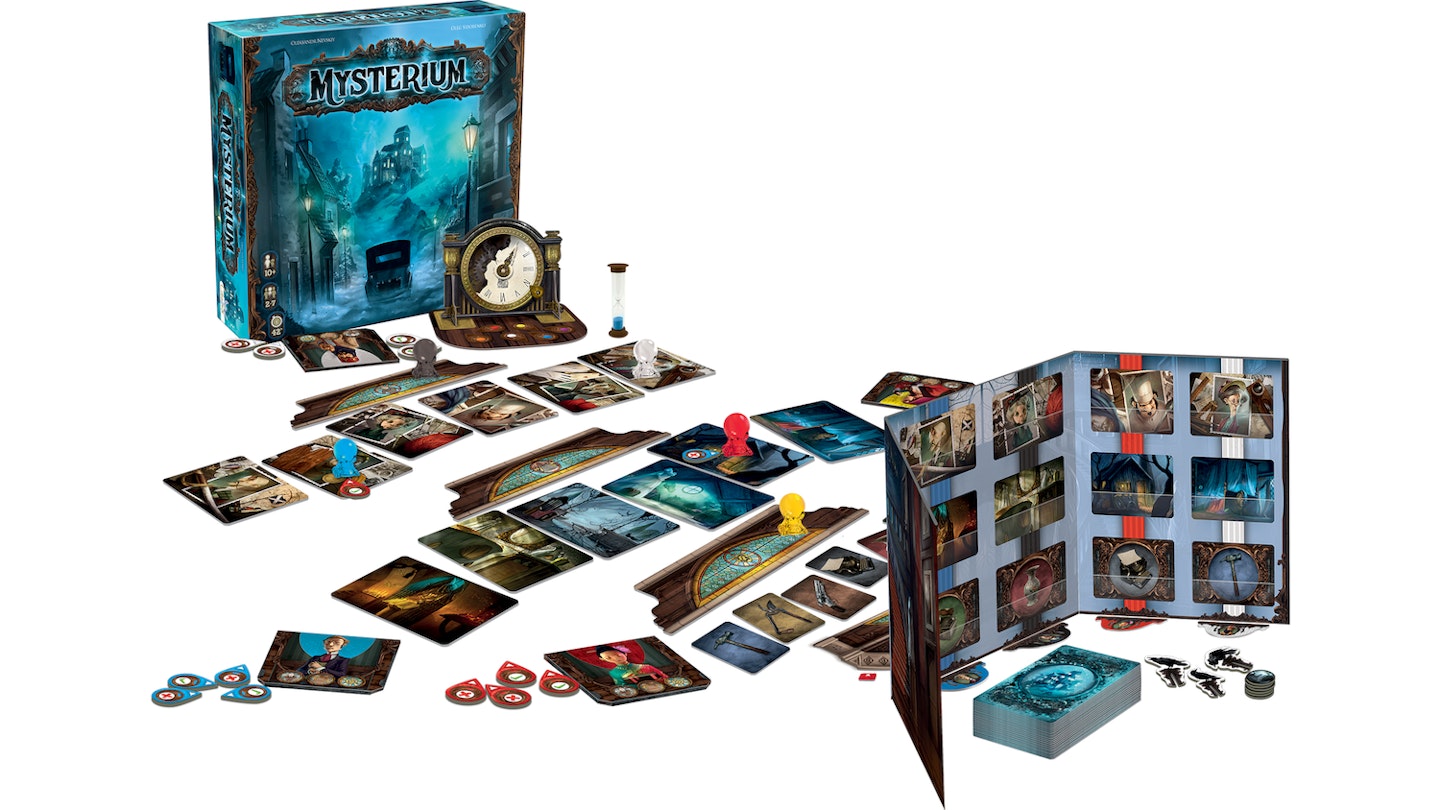
Designers: Oleksander Nevskiy, Oleg Sidorenko
Players: 2-7
Game Time: 60 mins
Age: 10+
Like Cluedo, Mysterium requires its players to solve a murder. Unlike Cluedo, one of the players is the murder victim, now a voiceless spirit, trying to silently point all the others (each playing a psychic) to all the right clues via surreal dream-visions. With these visions represented by lavishly illustrated art cards, it’s a deeply atmospheric and handsome affair, with an against-the-clock, sand-timer element that injects a bit of party-game fun.
28. Sushi Go! (2013)

Designer: Phil Walker-Harding
Players: 2-5
Game Time: 15 min
Age: 8+
A swift, snappy, set-collecting card game with a sushi-flavoured twist — in more ways than one. Over three rounds, each player aims to score the most points by creating a ‘meal’ of sashimi, maki roll and dumpling cards, but nobody keeps the same hand for longer than a turn. Instead, they’re passed around the table — just like the food trundling around a track in a sushi restaurant. So moreish, it’s hard to put away.
29. T.I.M.E. Stories (2015)
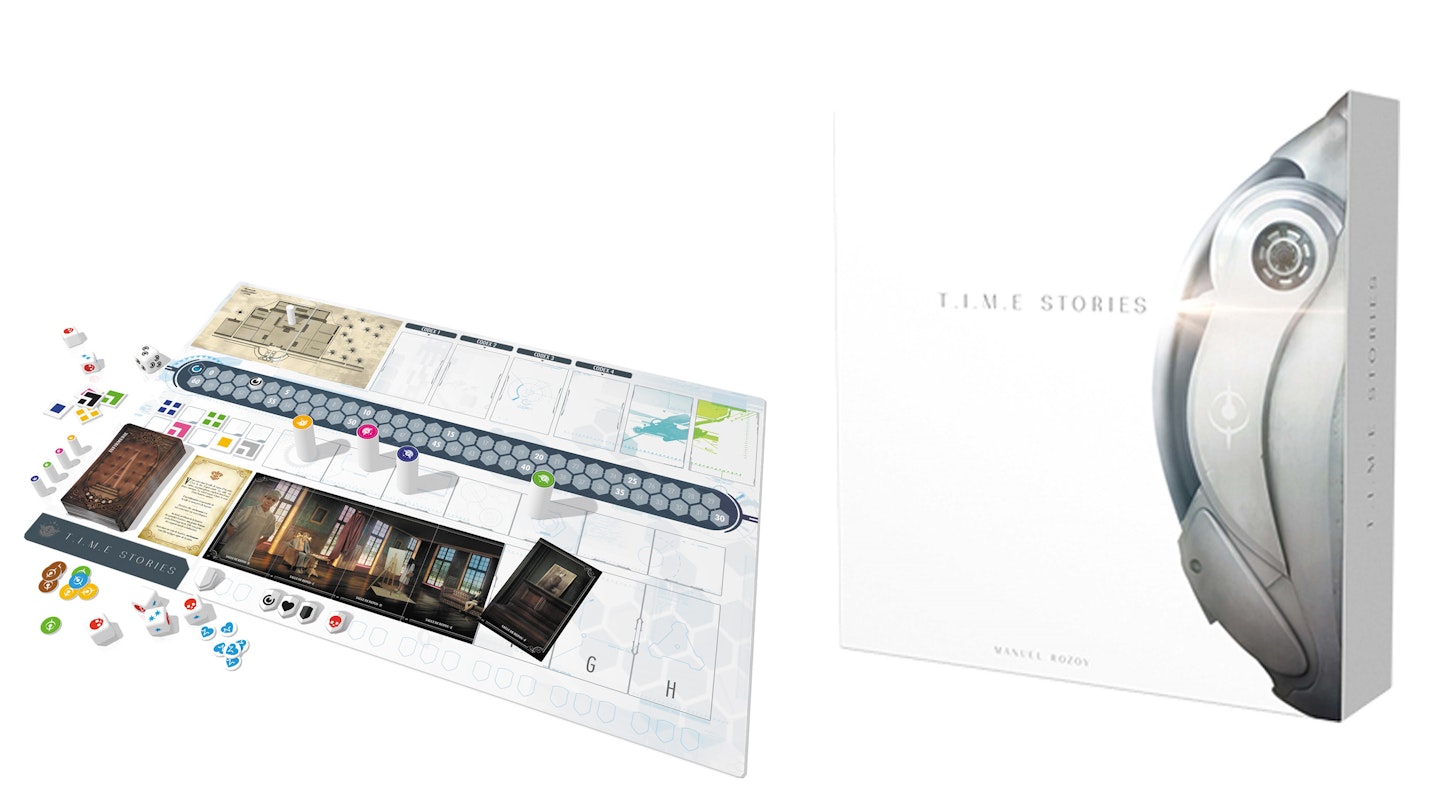
Designers: Manuel Rozoy, Peggy Chassenet
Players: 2-4
Game Time: 120 min
Age: 12+
A co-operative game which casts its players as a team of Quantum Leap-style time travellers, sent on missions to solve space-time anomalising mysteries. It works by studying picture cards for clues and facing the challenges they throw at you, using your avatars’ own particular set of skills. Each mission is a one-time only kinda deal, but after you complete the base game’s creepy Lovecraftian asylum scenario, there are numerous other adventure decks available to buy.
30. Fog Of Love (2017)
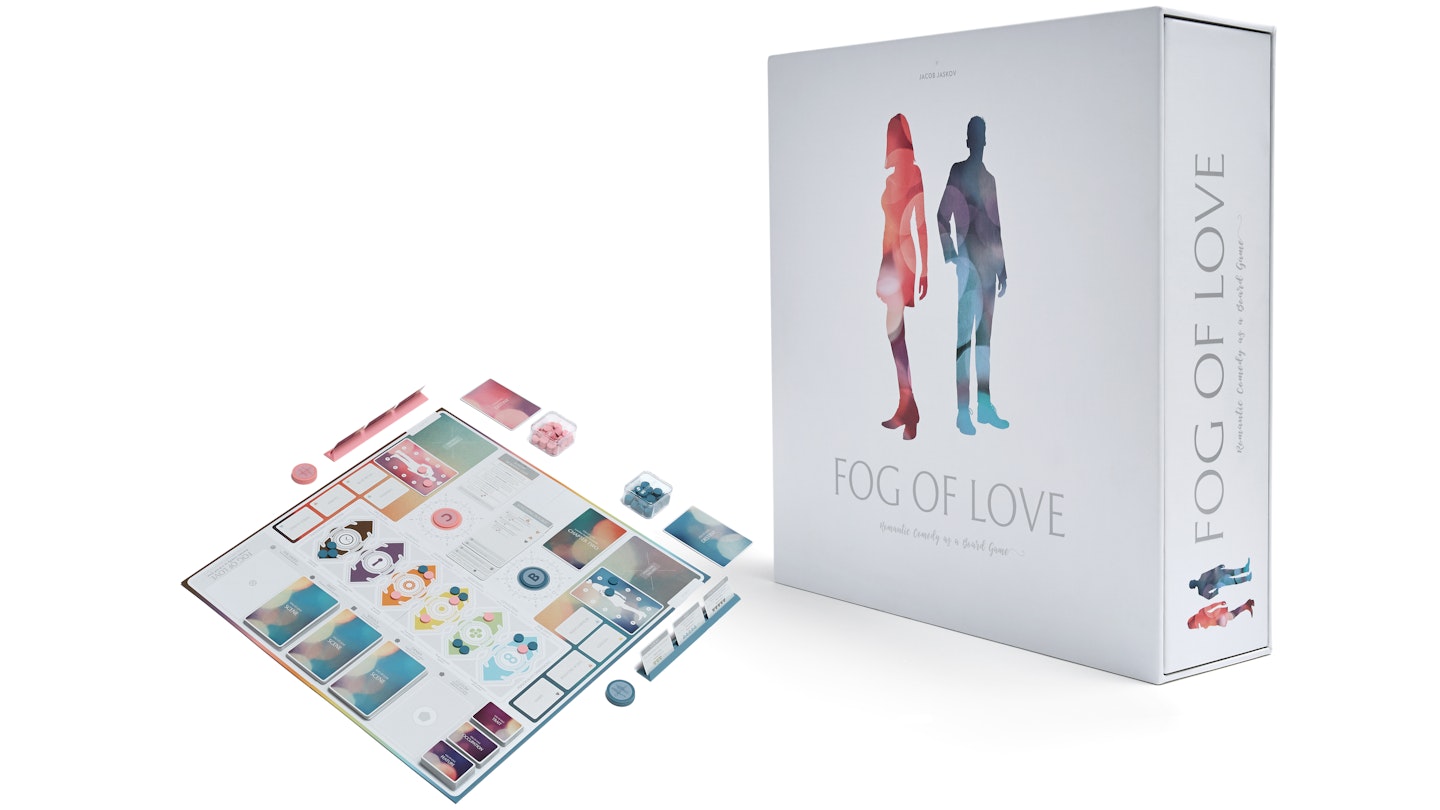
Designer: Jacob Jaskov
Players: 2
Game Time: 60 min
Age: 17+
Essentially a rom-com in board-game form, Fog Of Love casts its two players as a pair of randomly built characters (either male or female) who meet, fall in love, then have to deal with the ups and downs of a relationship as they try to predict how the other will react in certain (sometimes zany) situations, depending on their perception of their key character traits.
